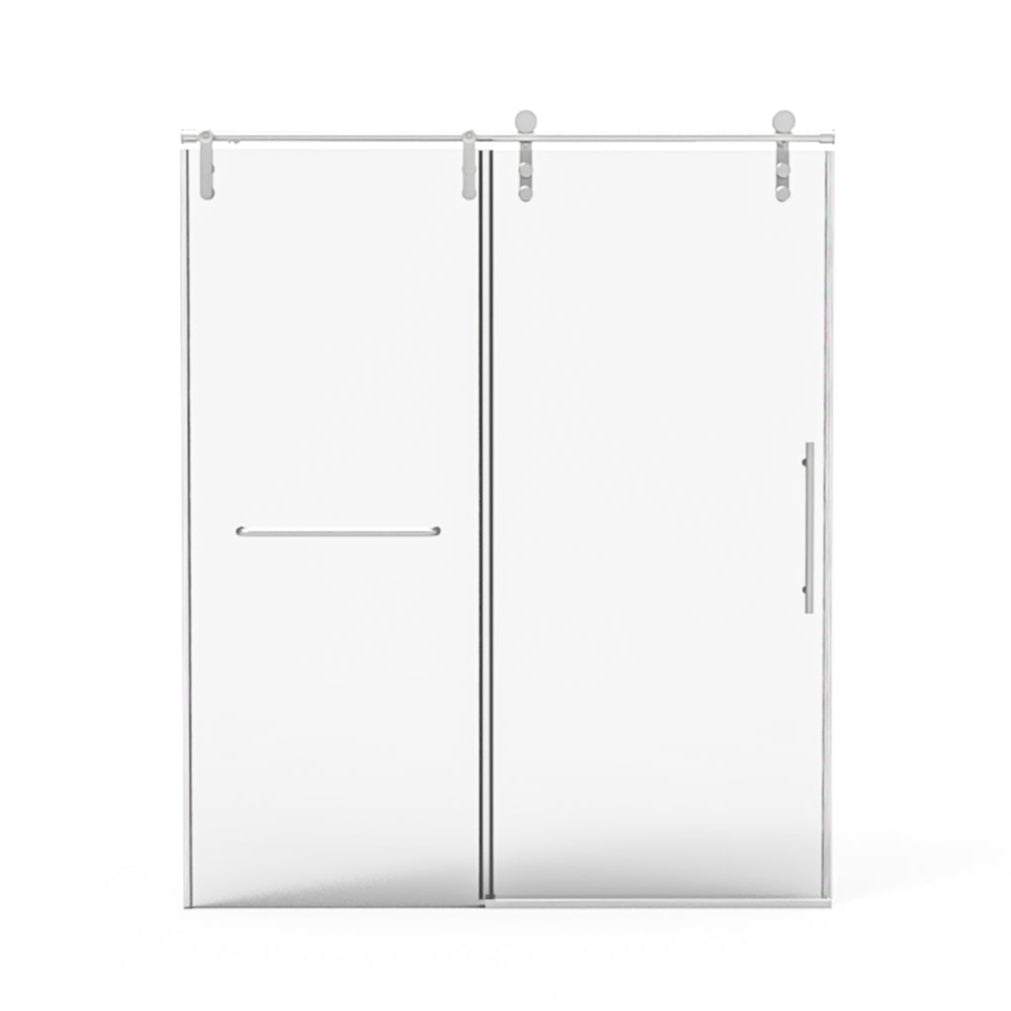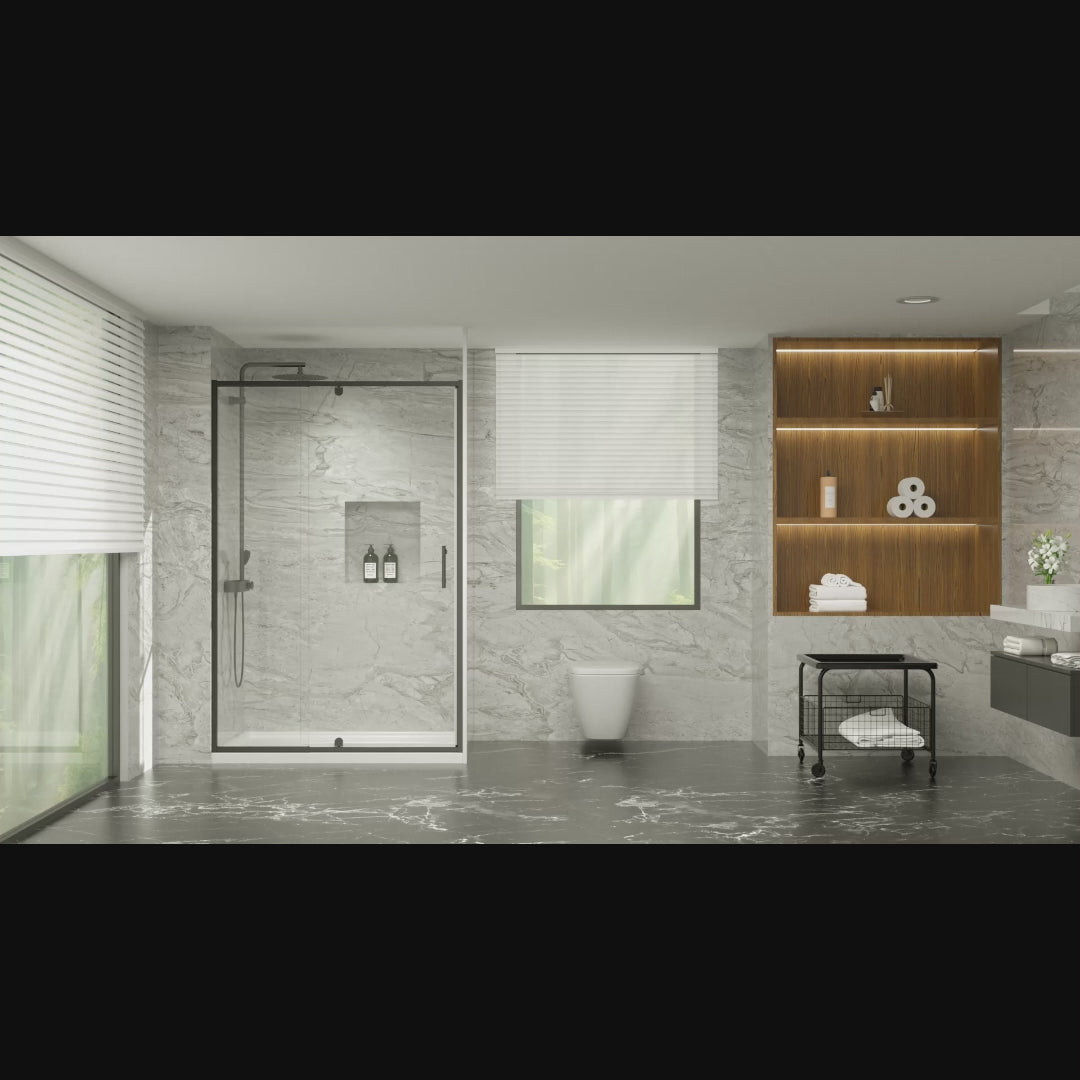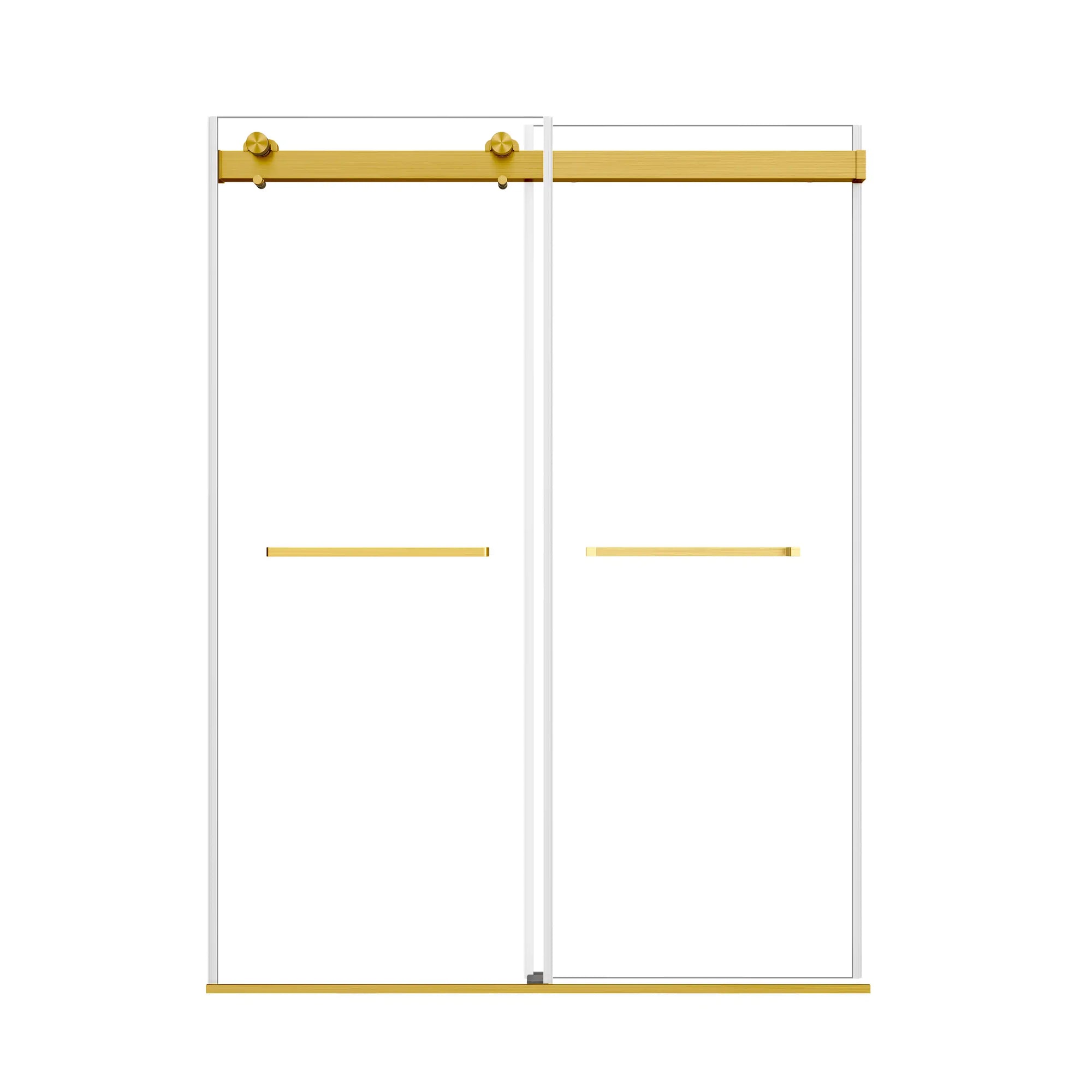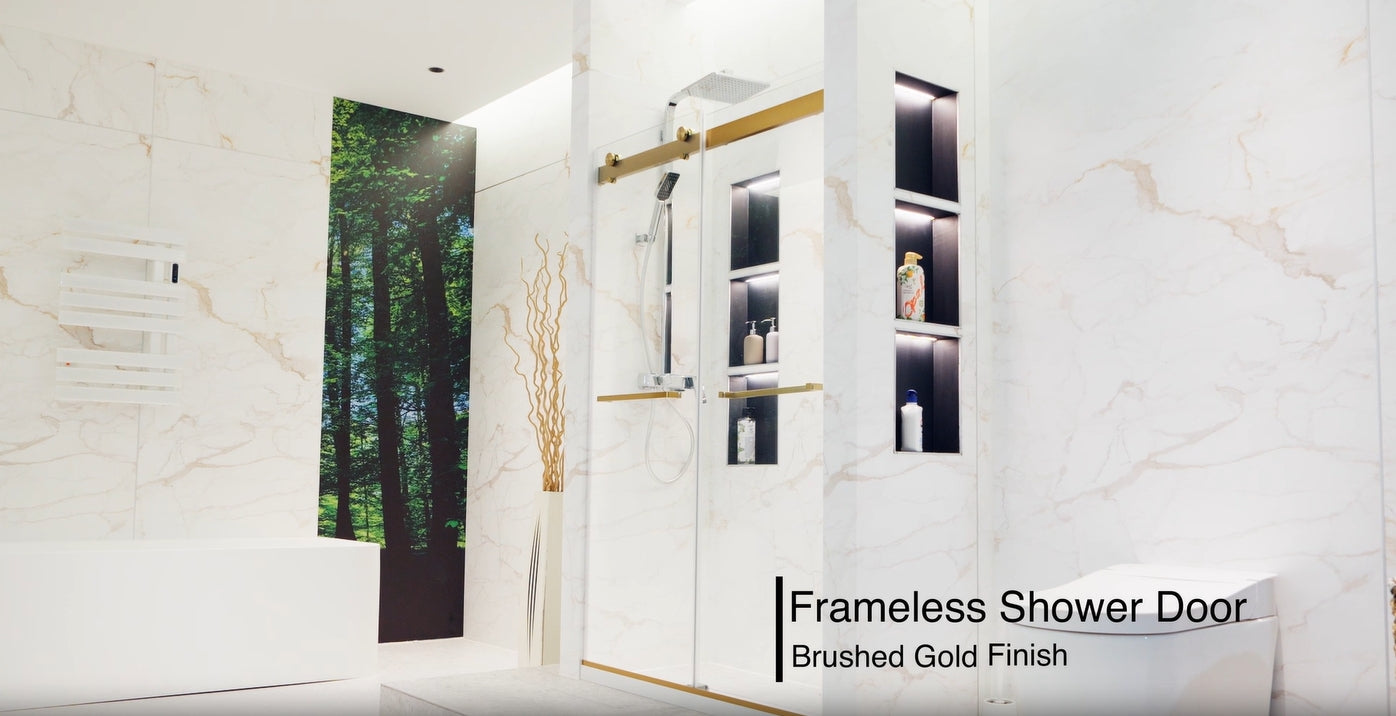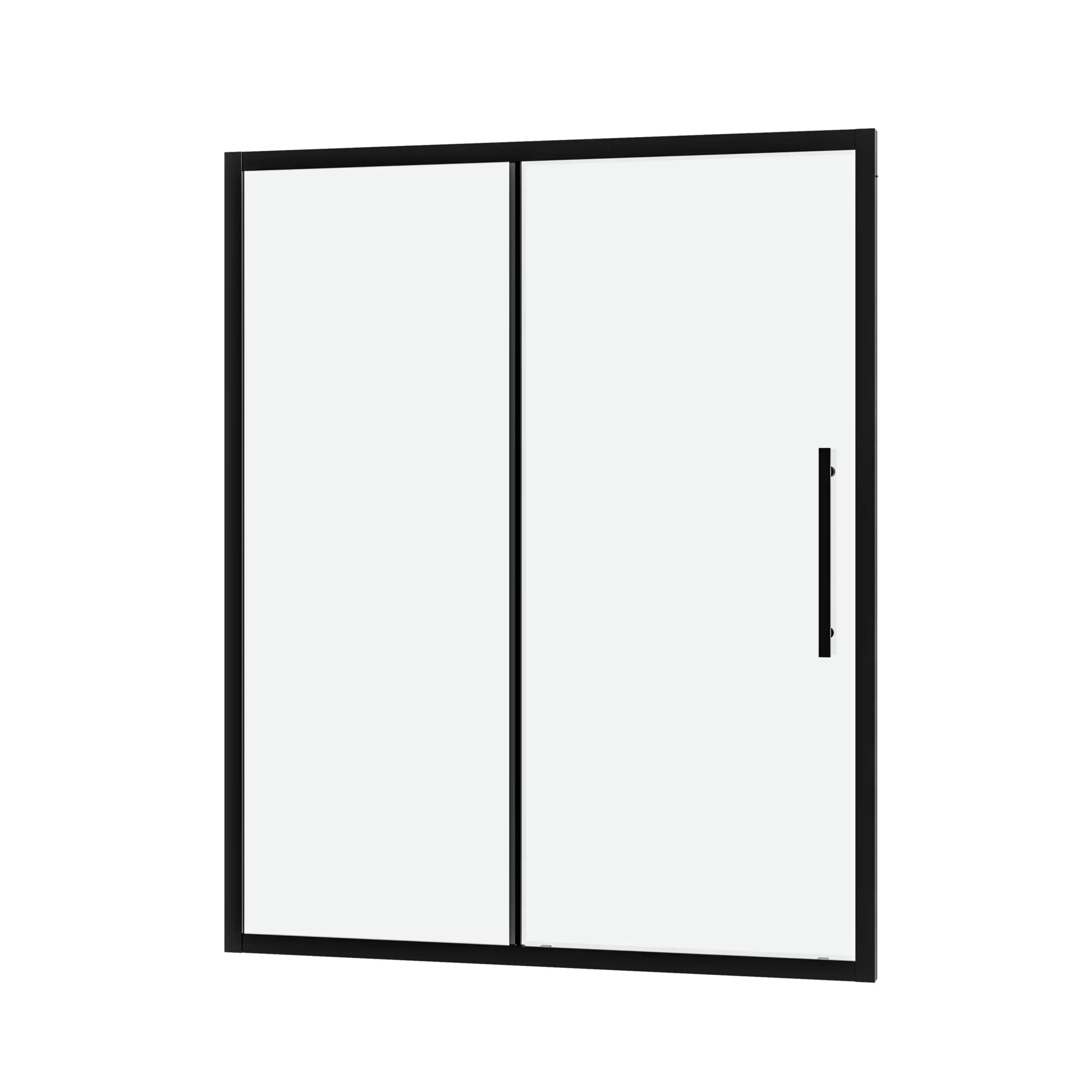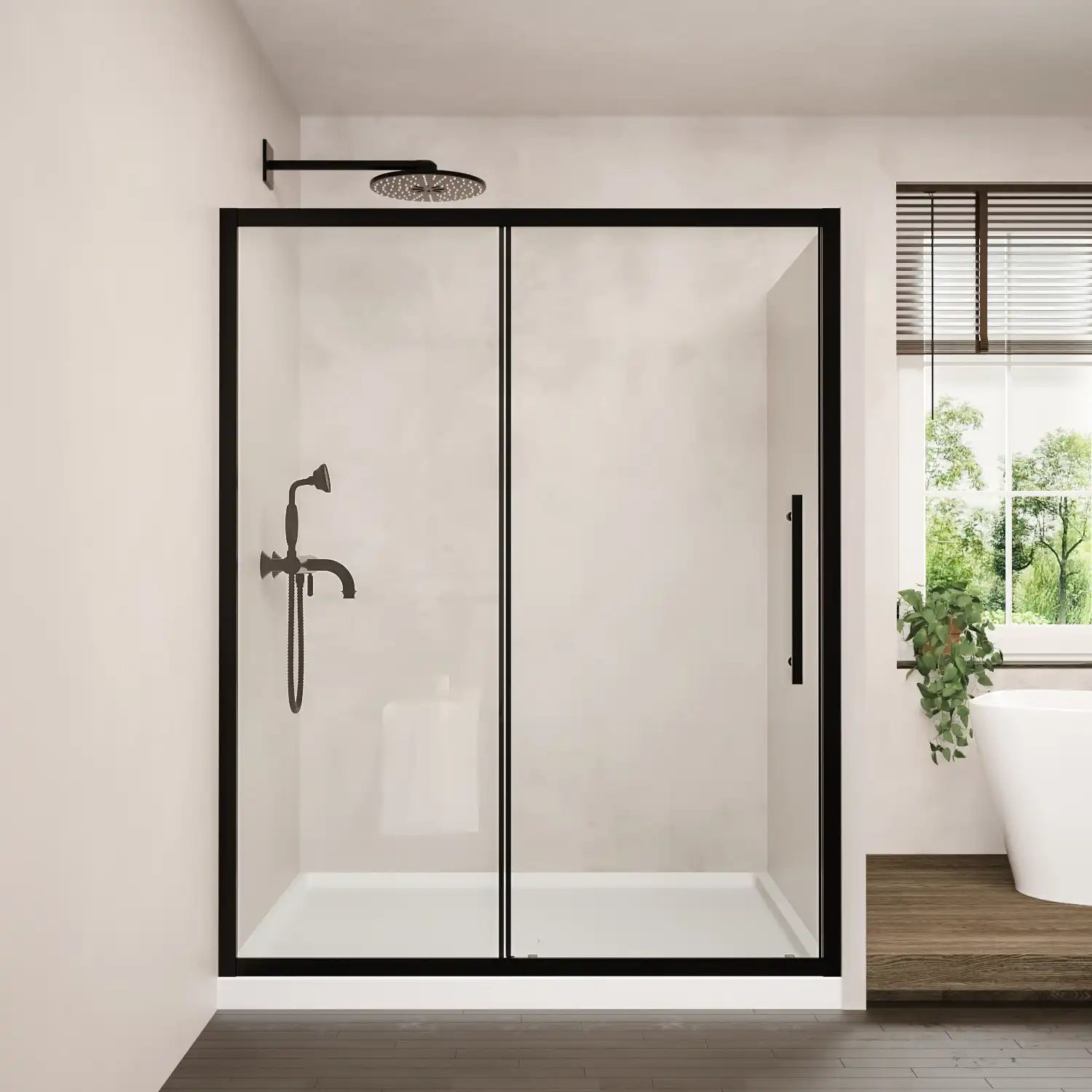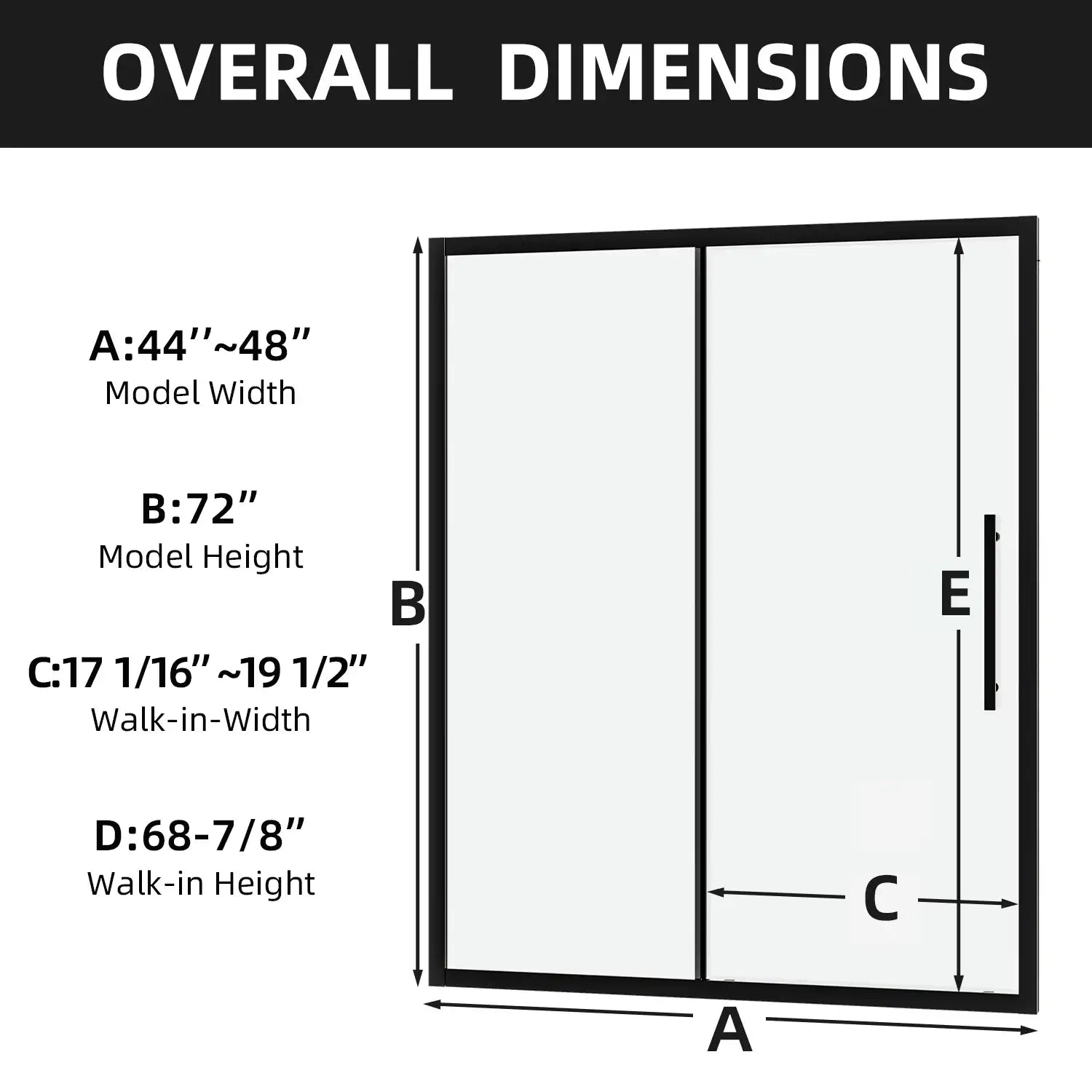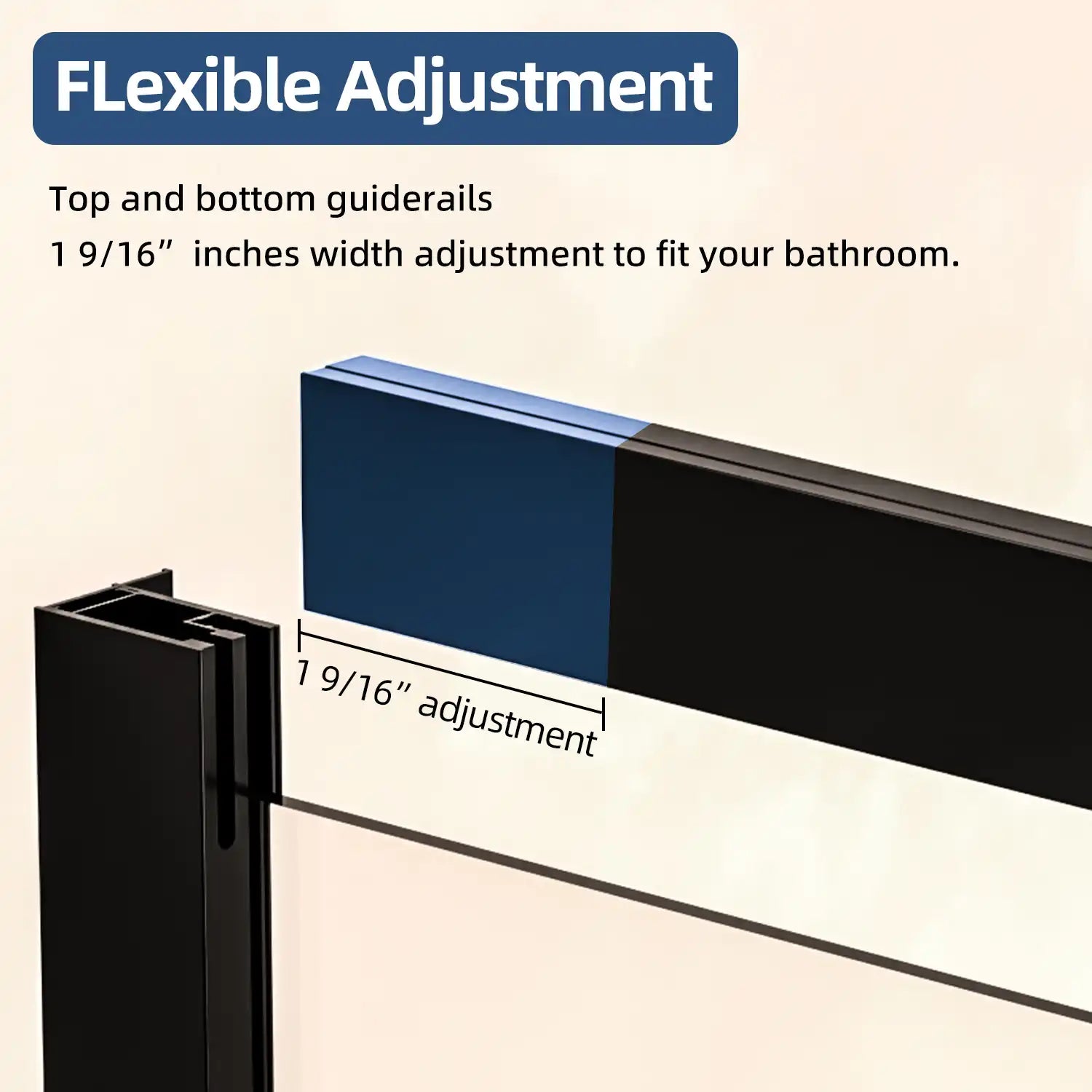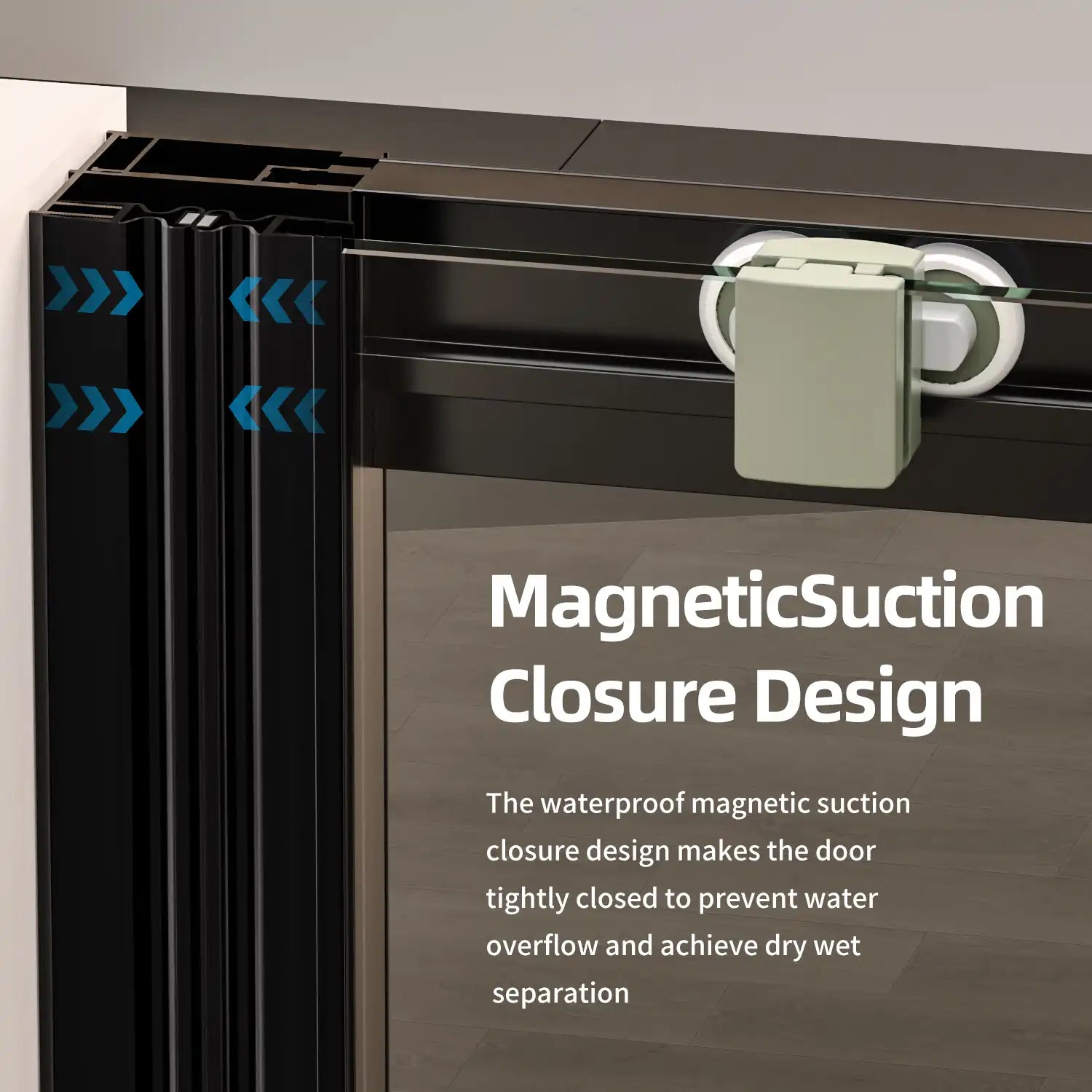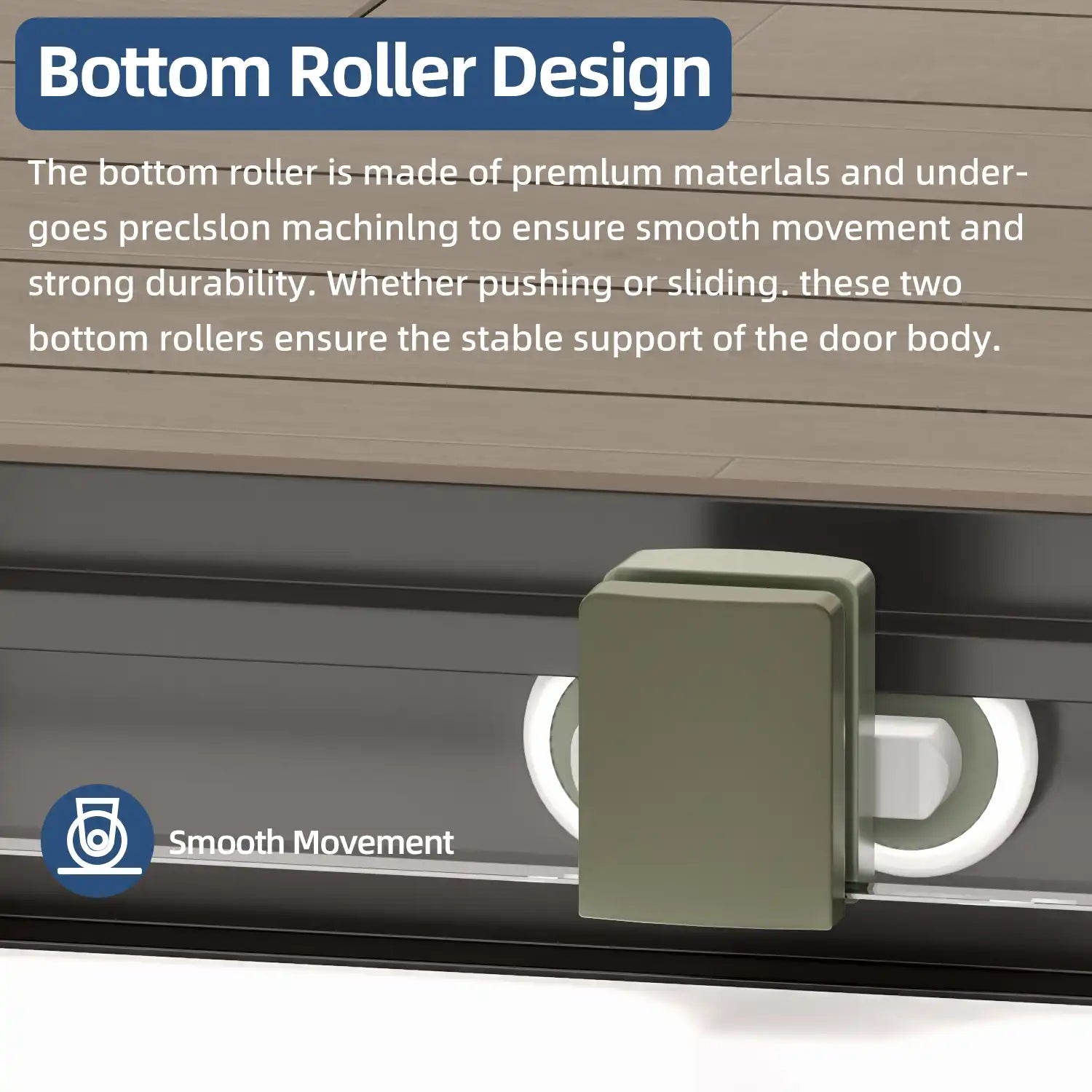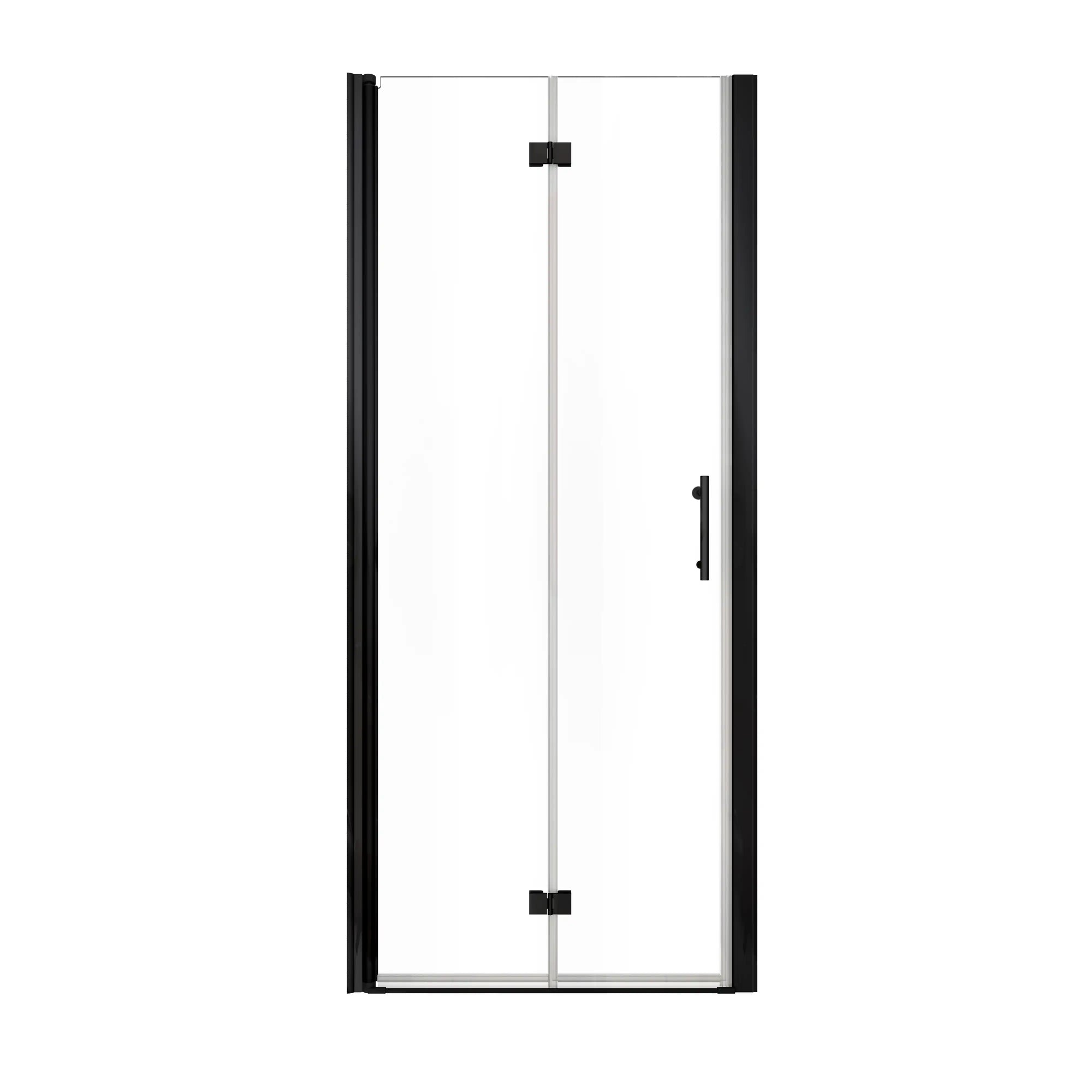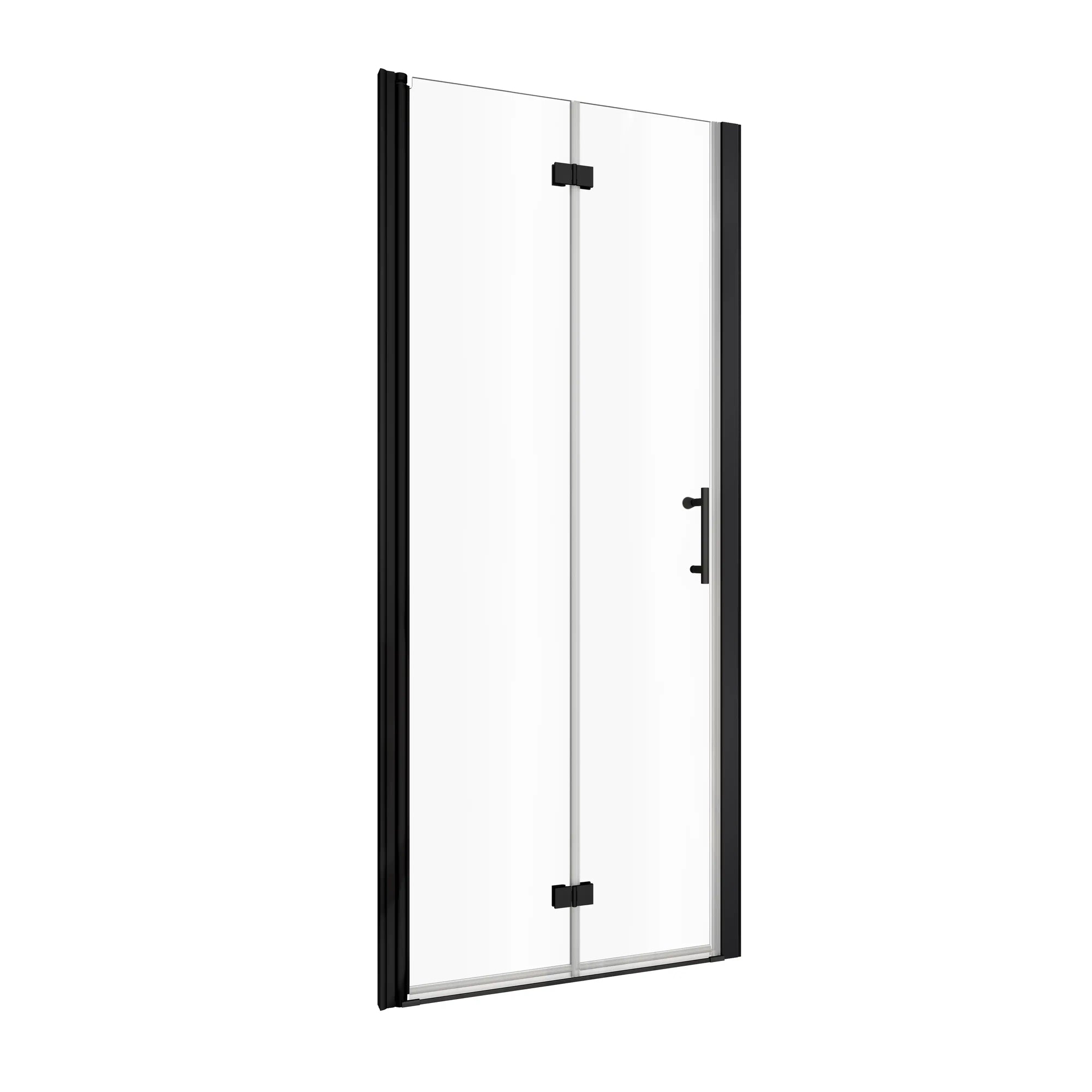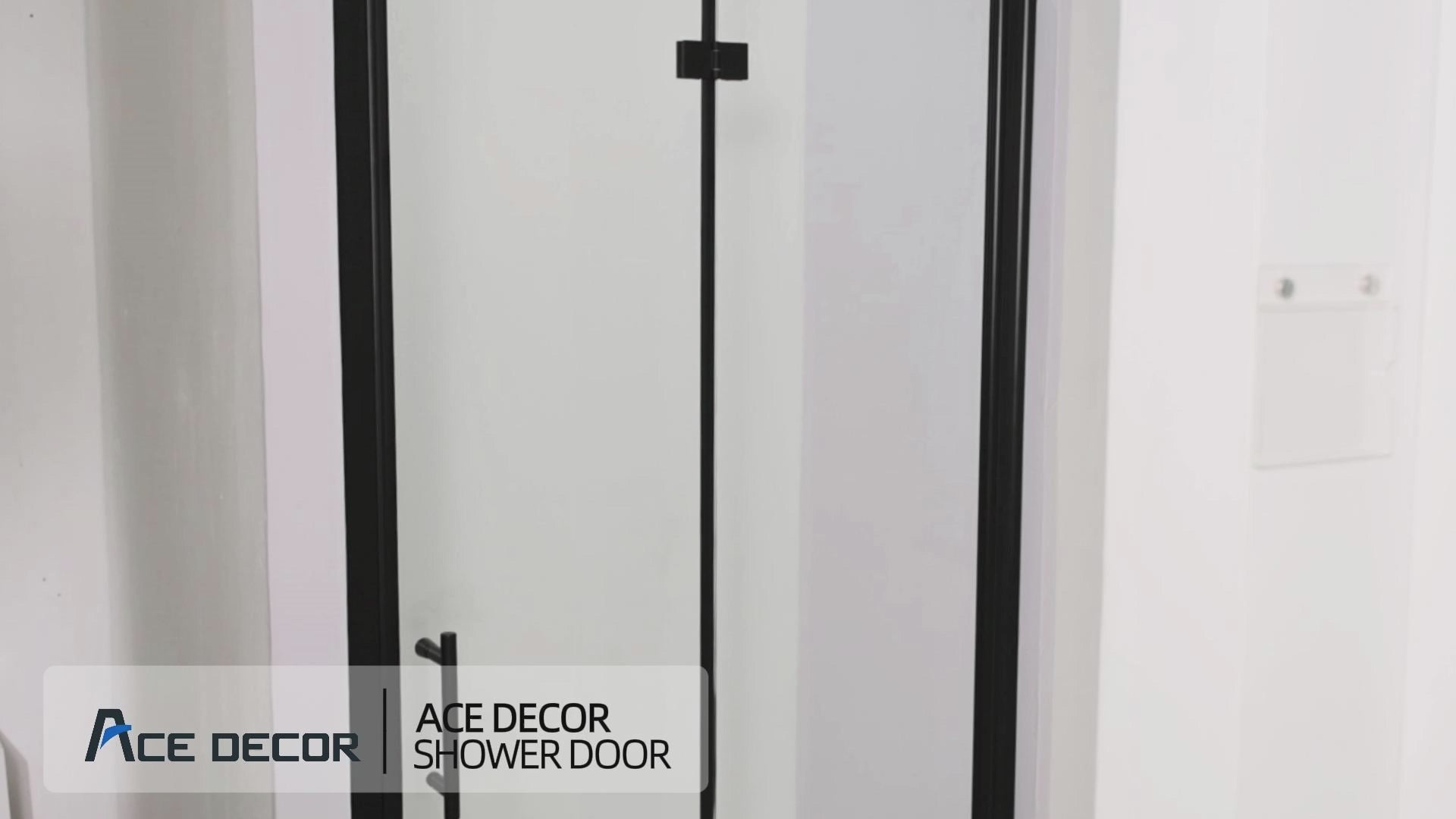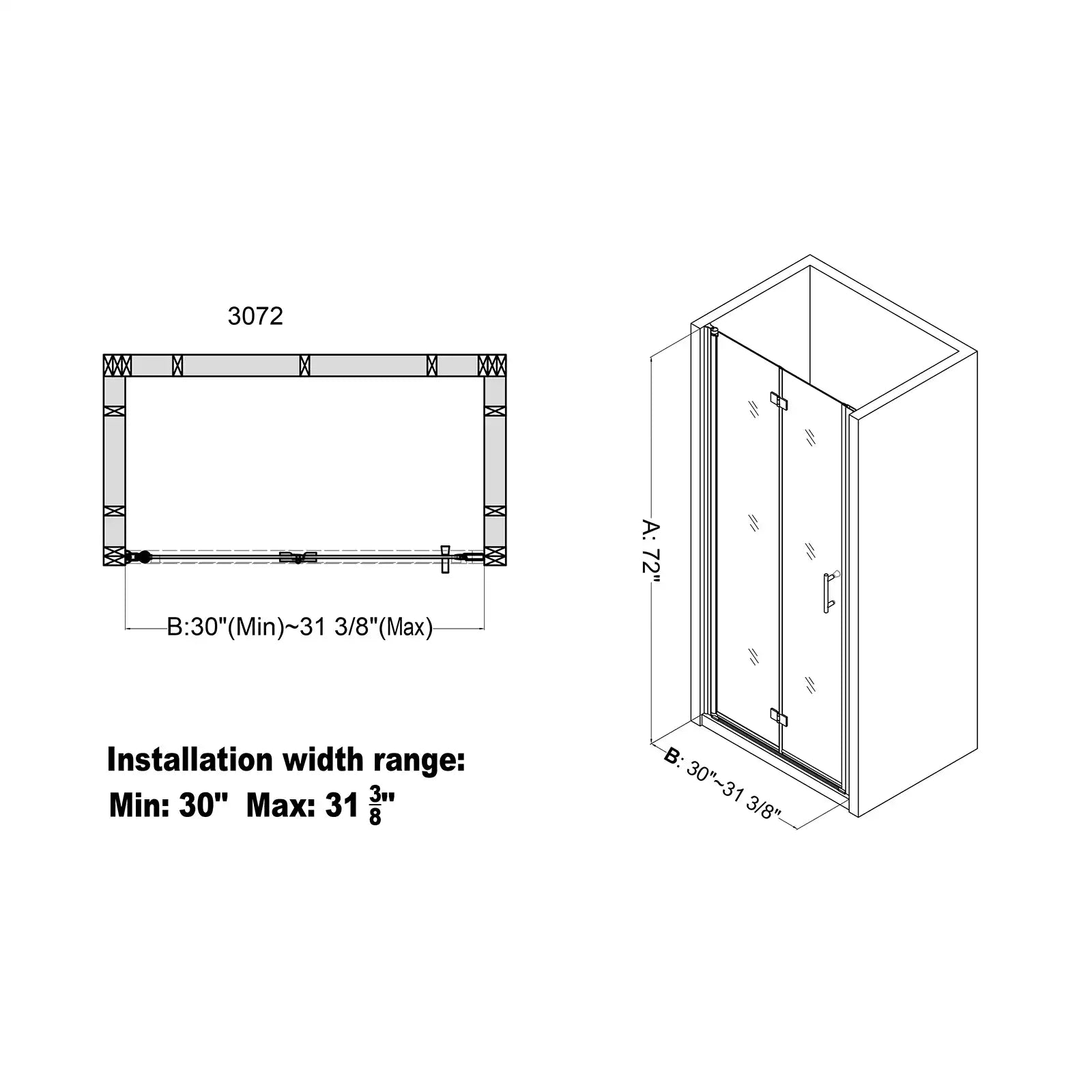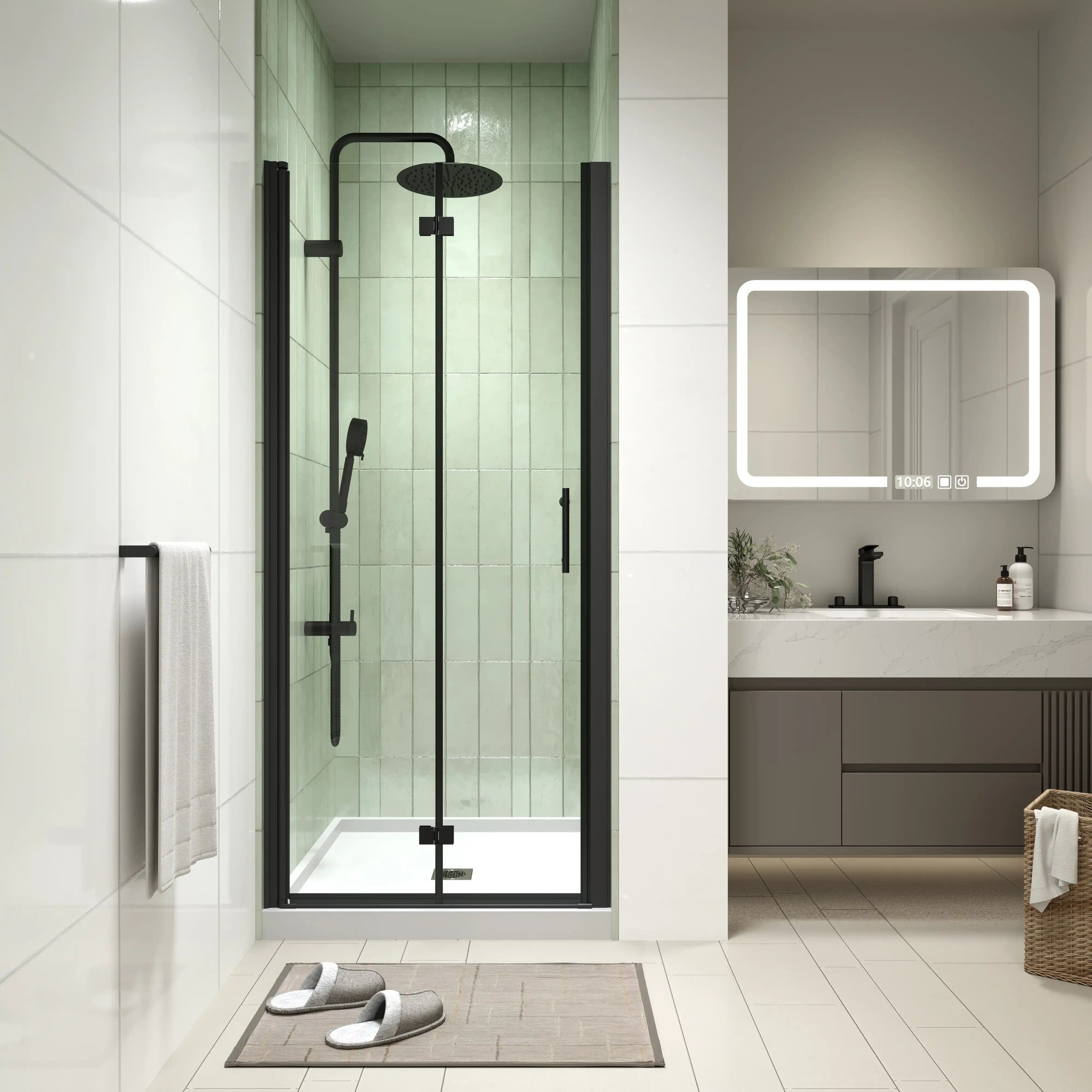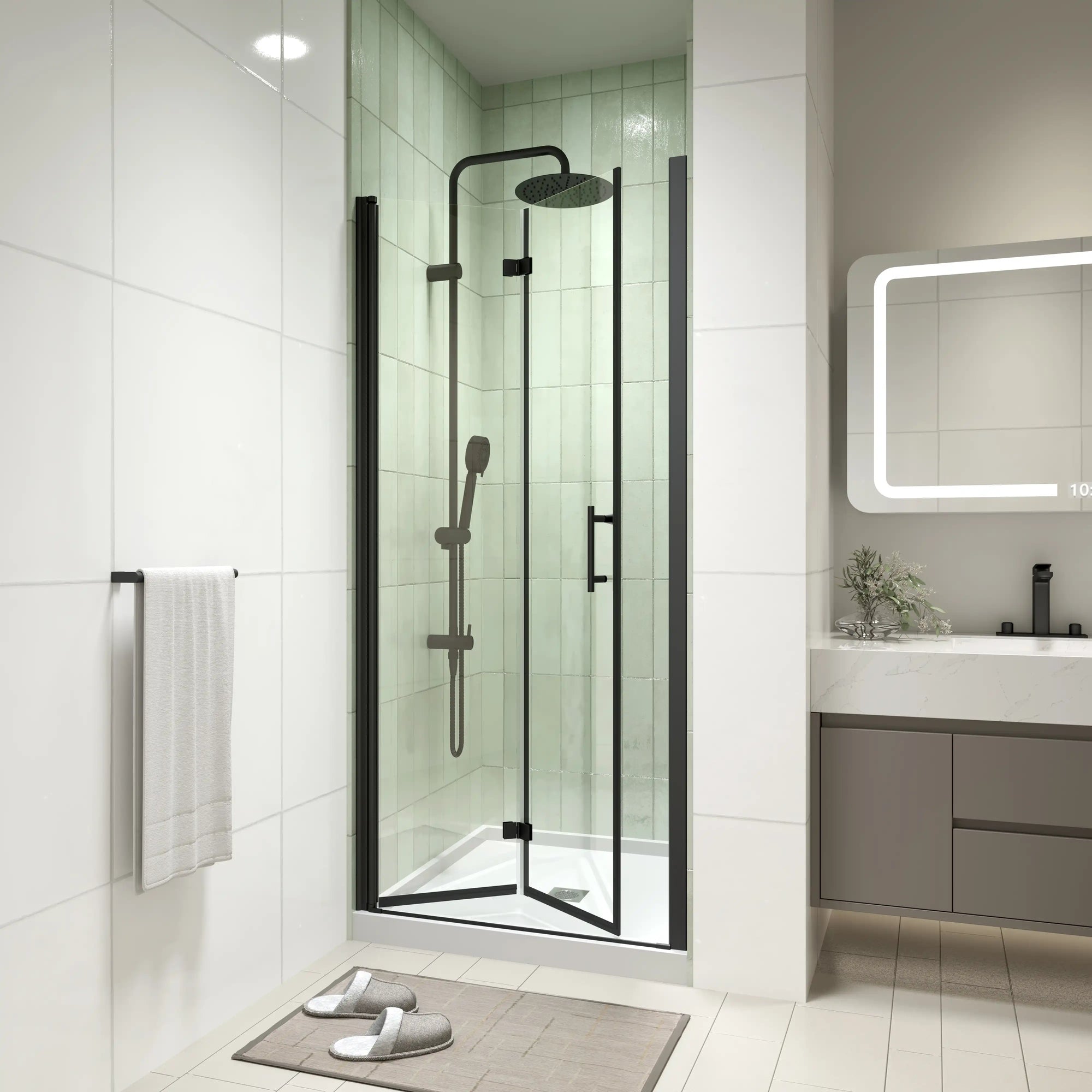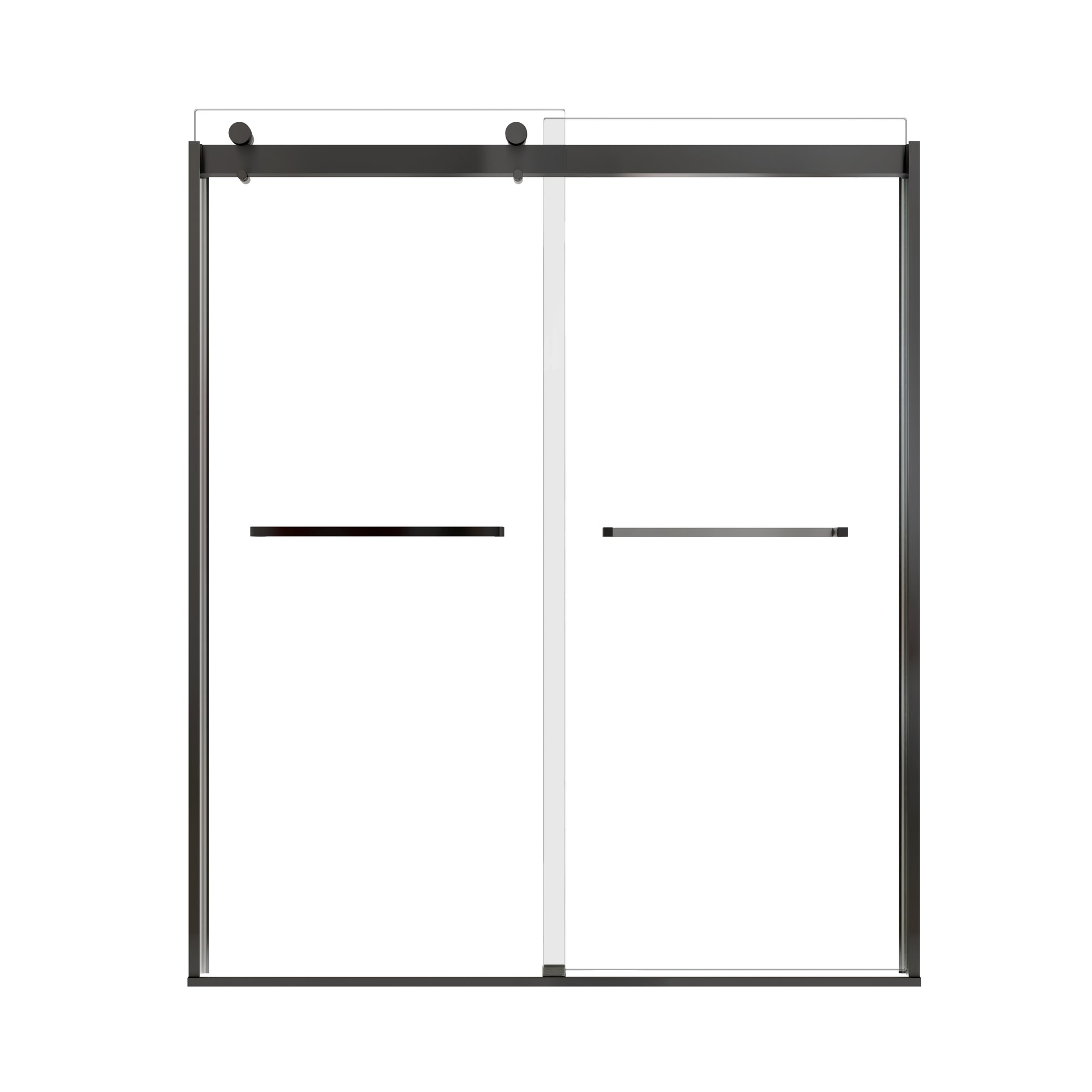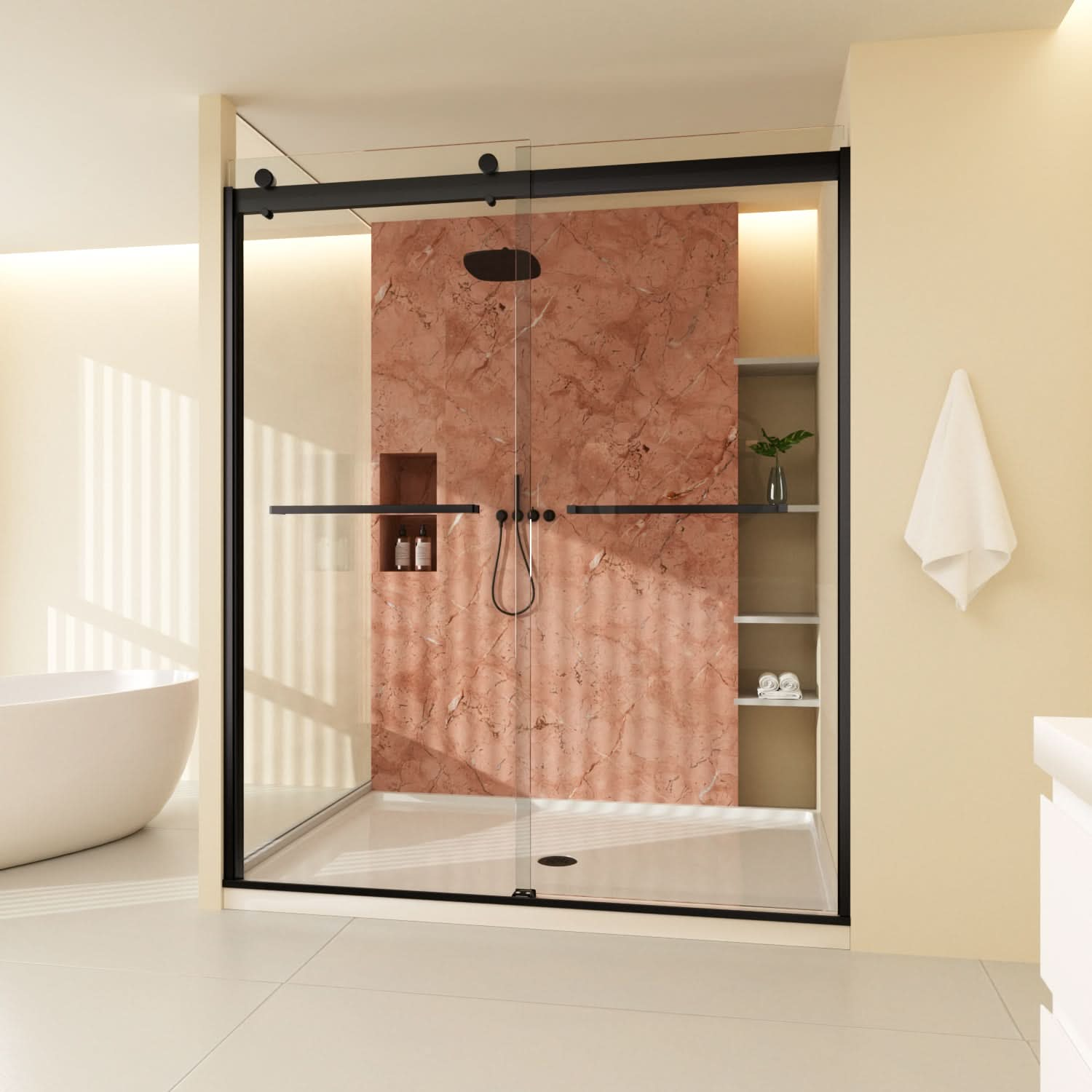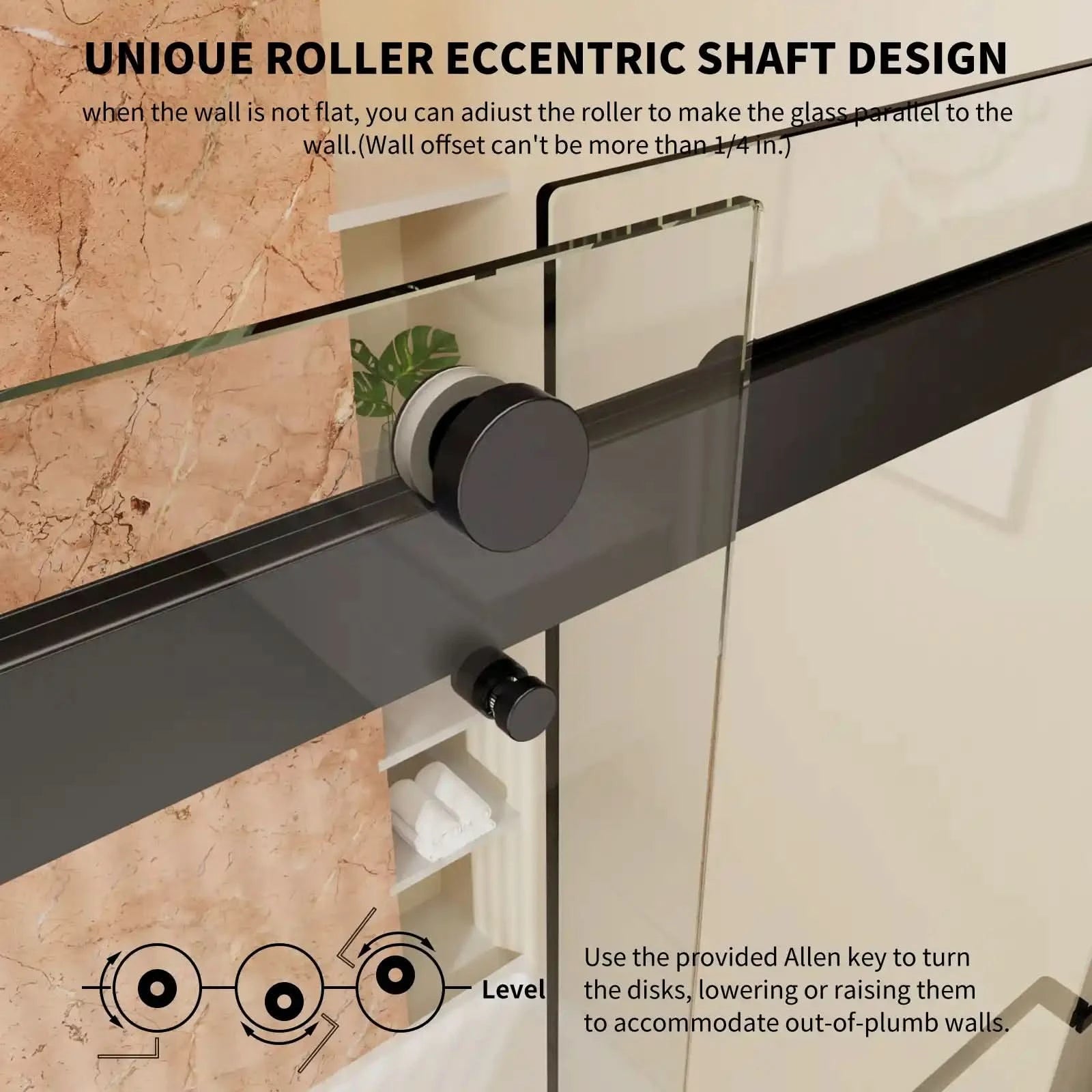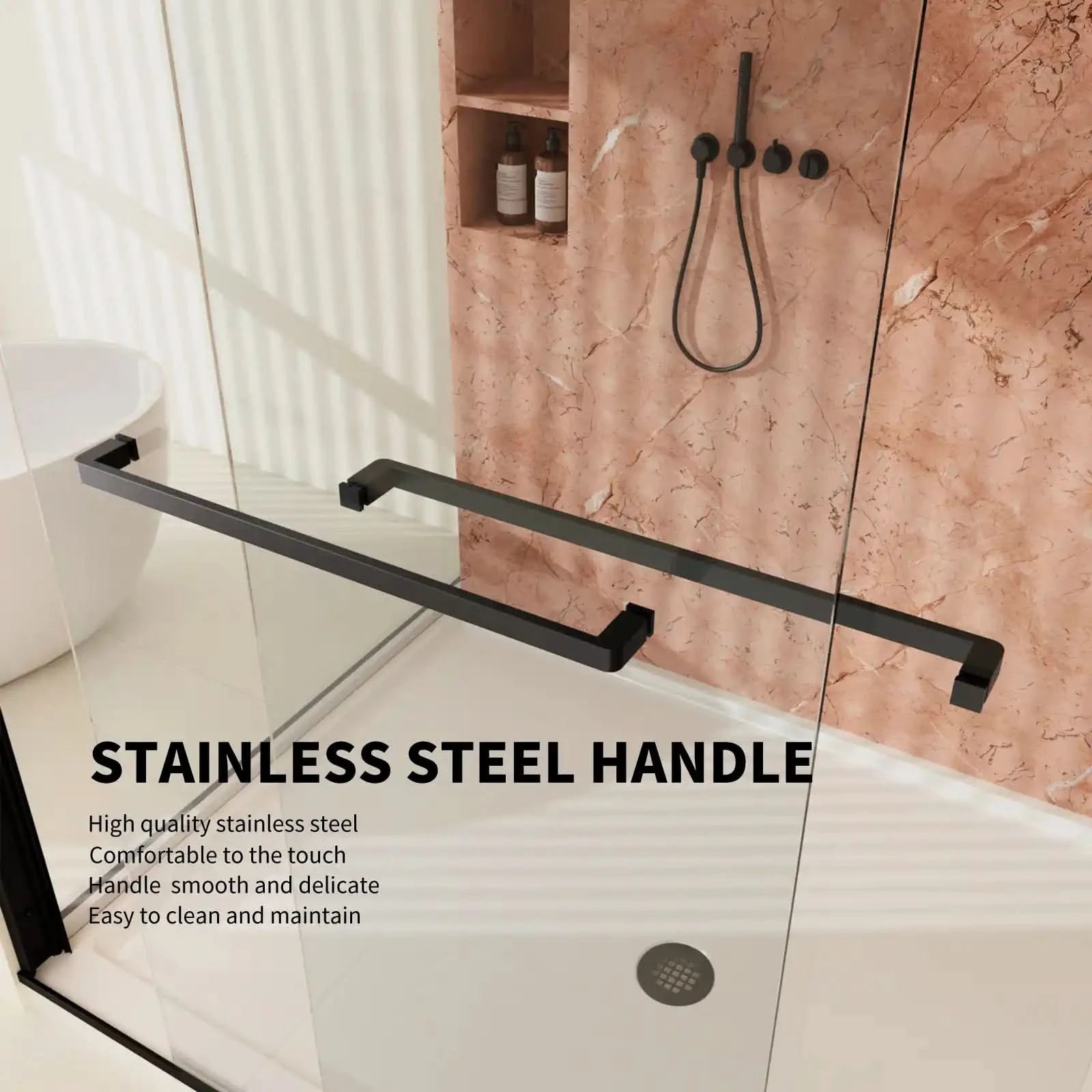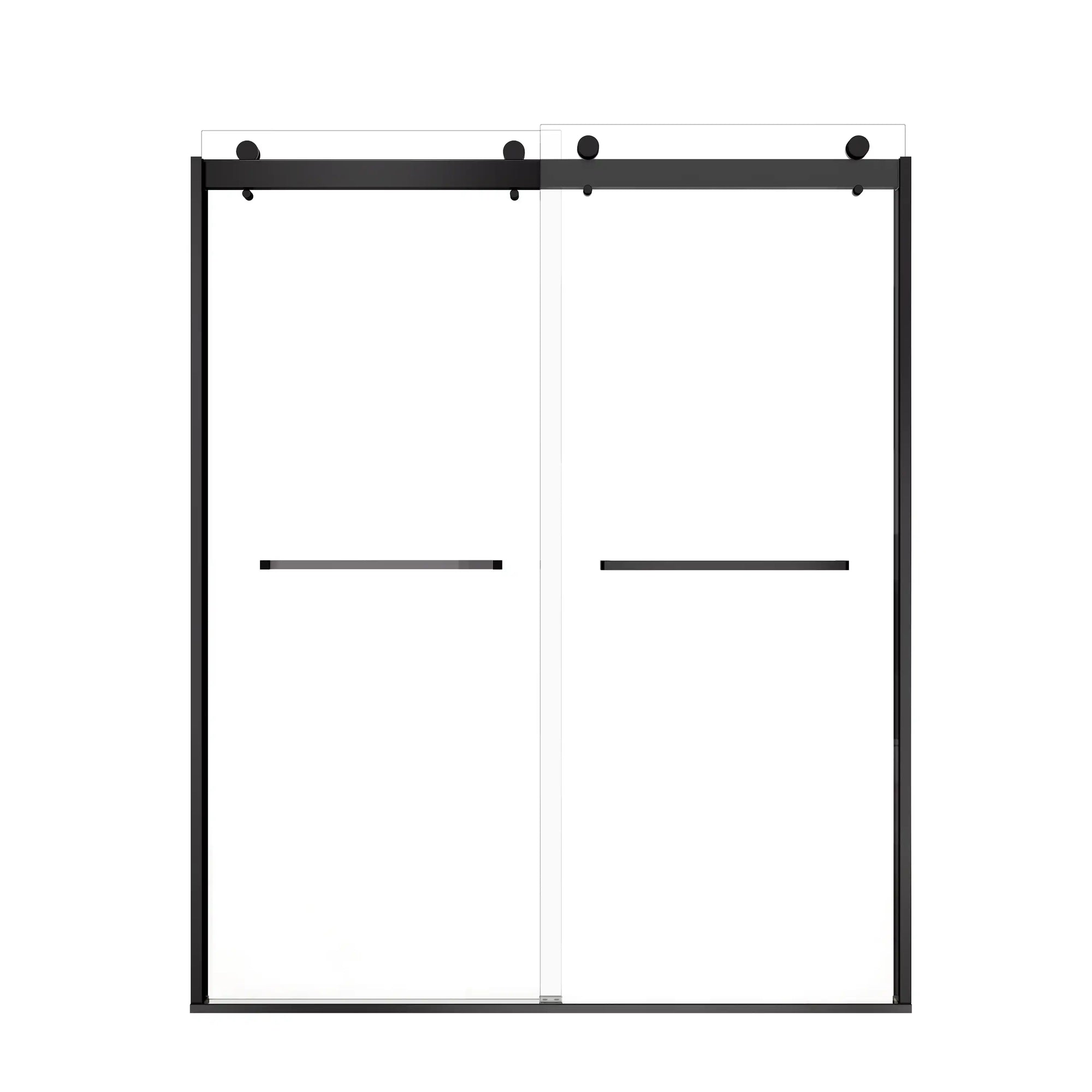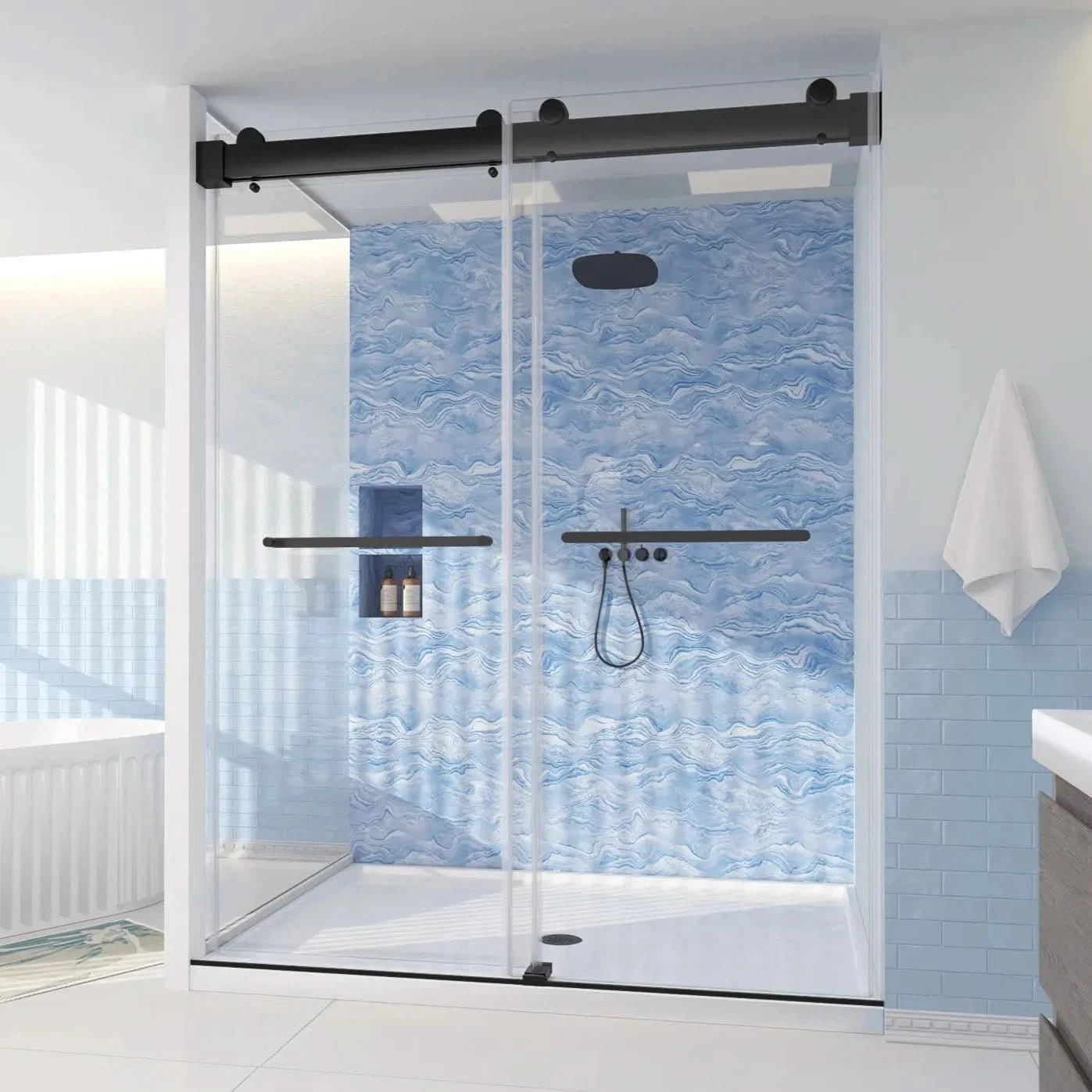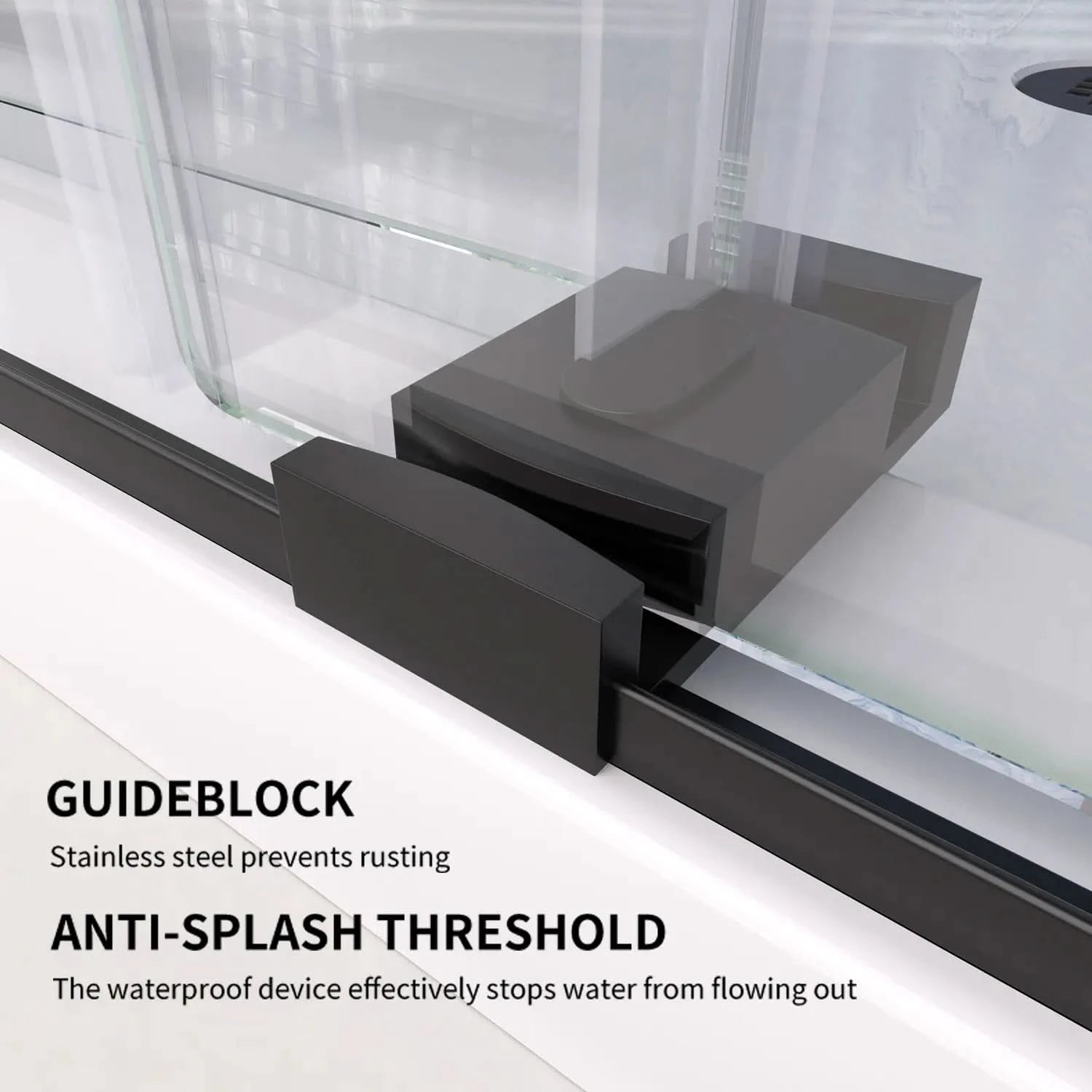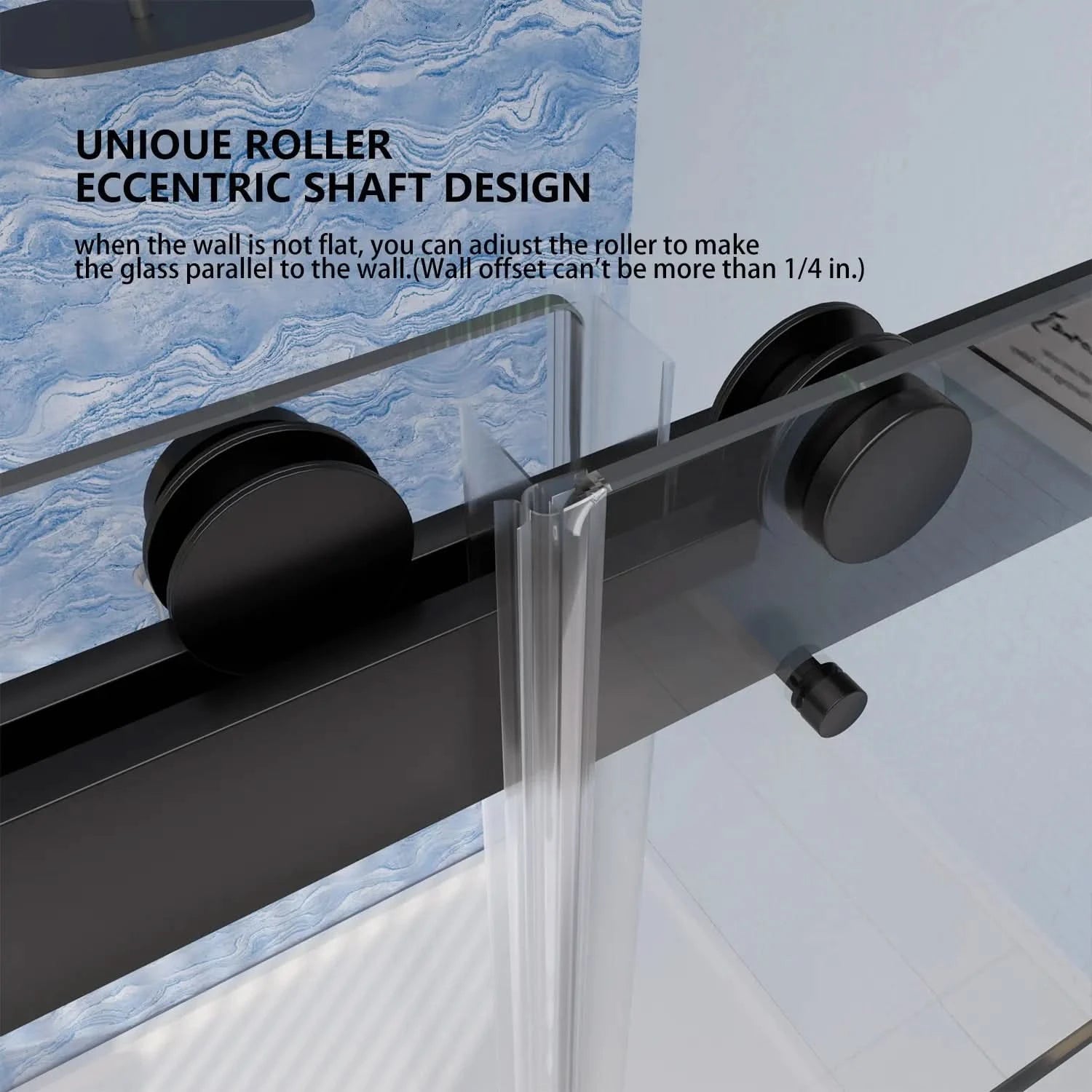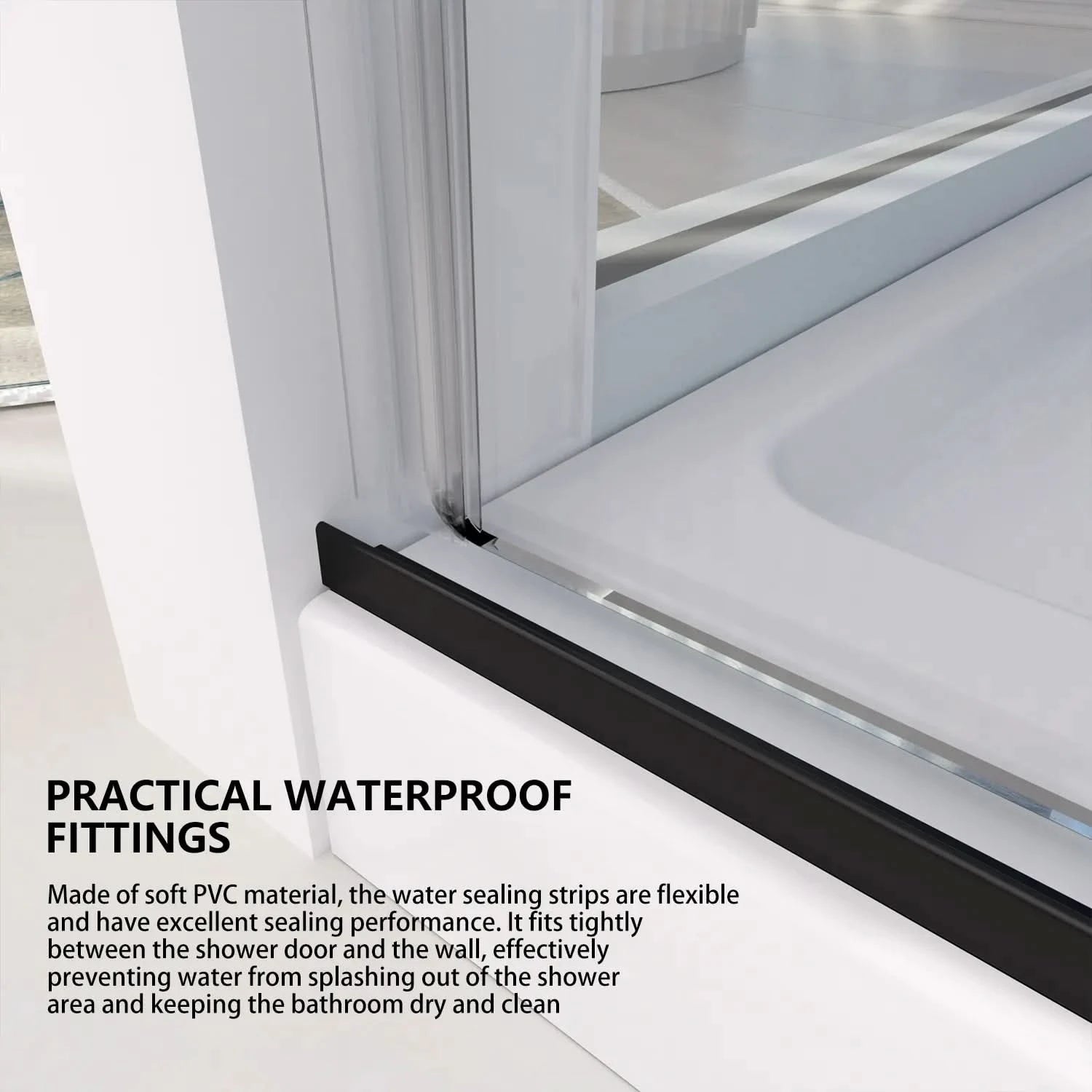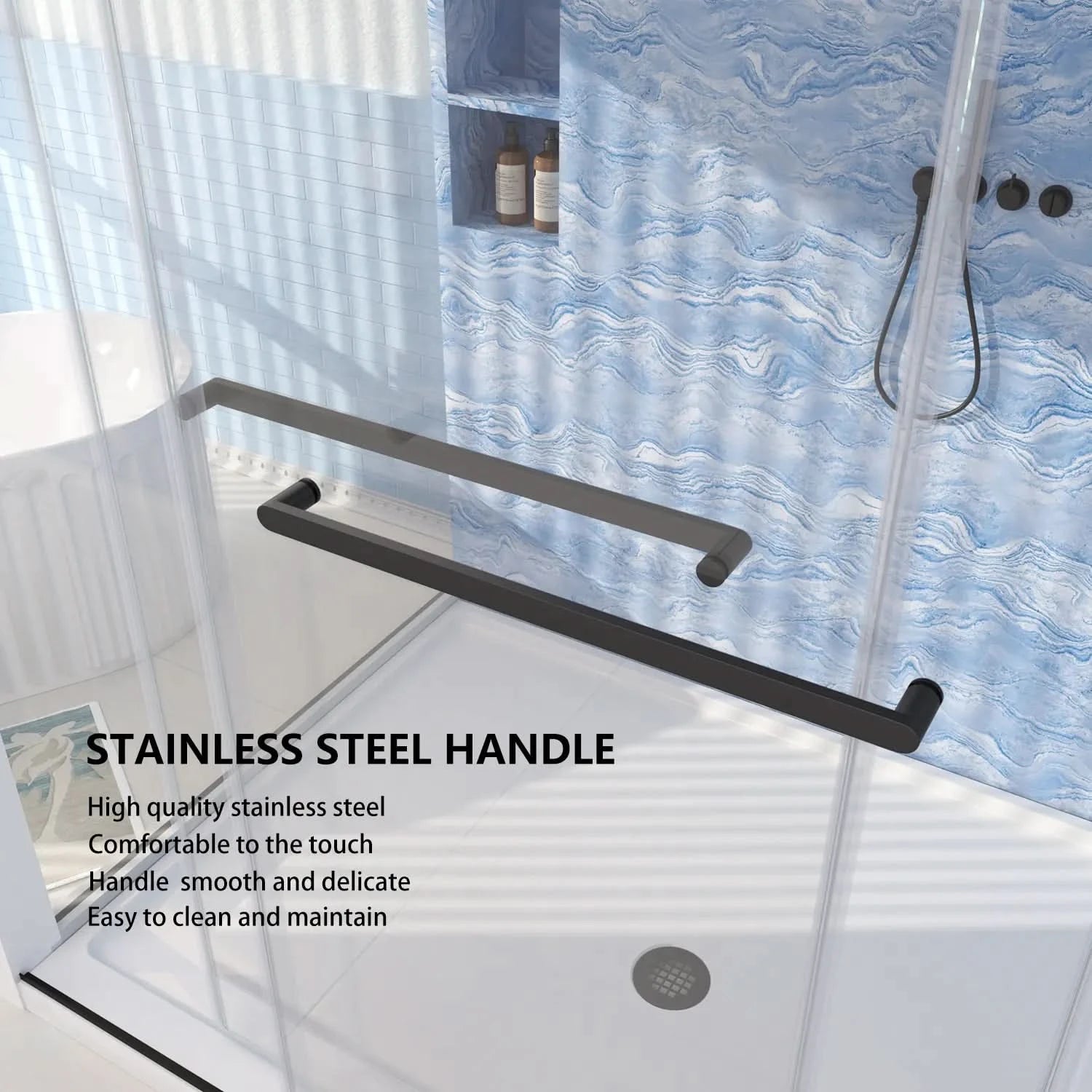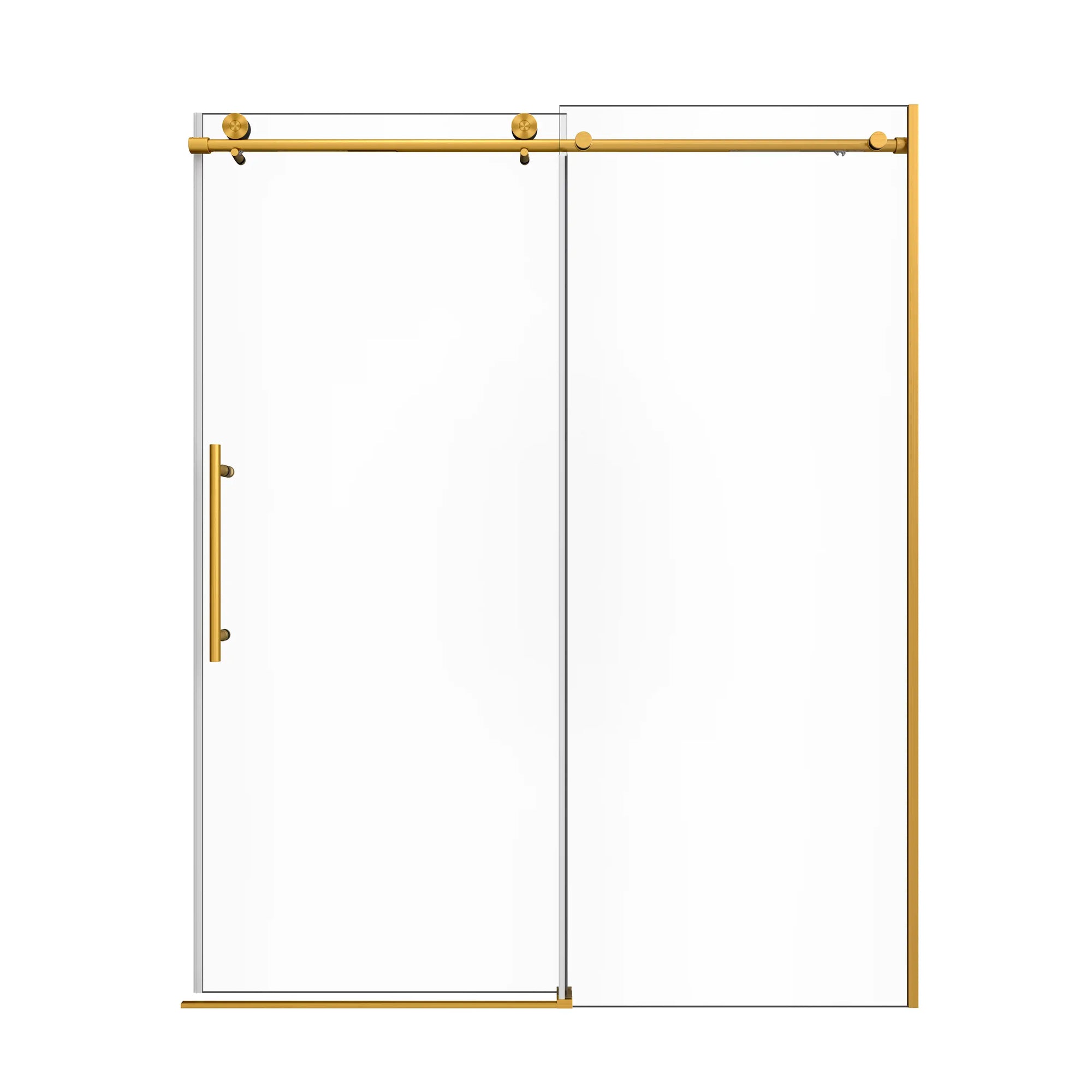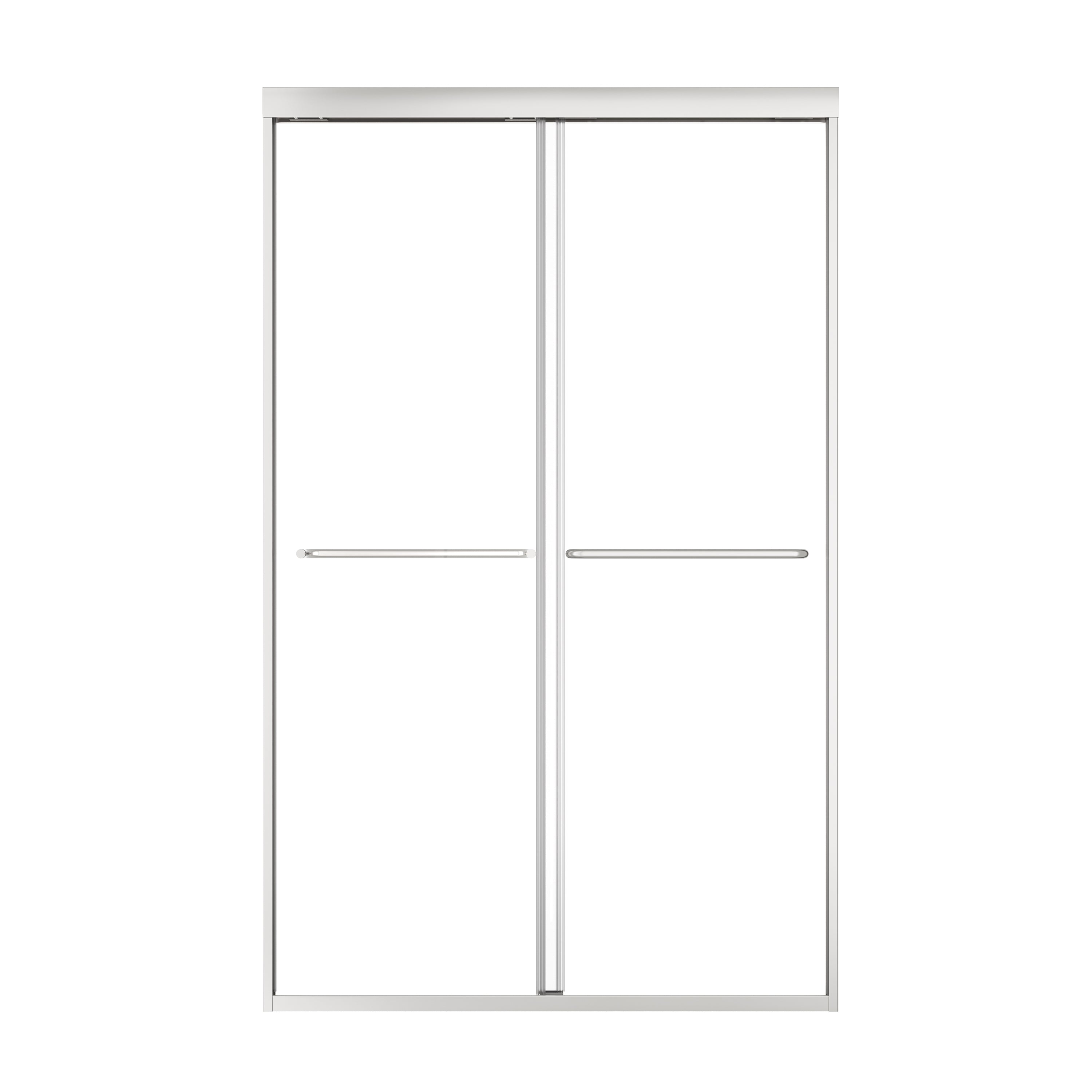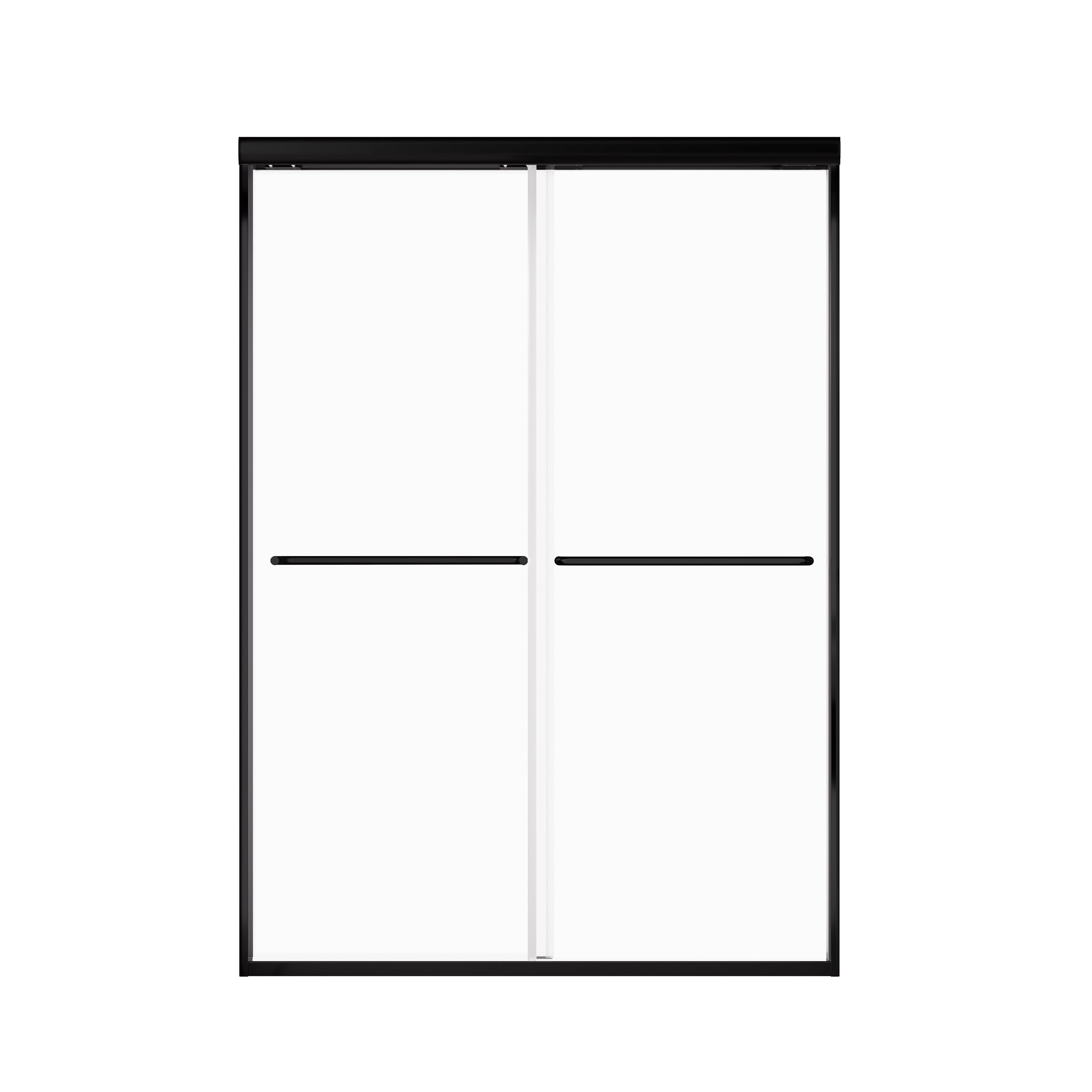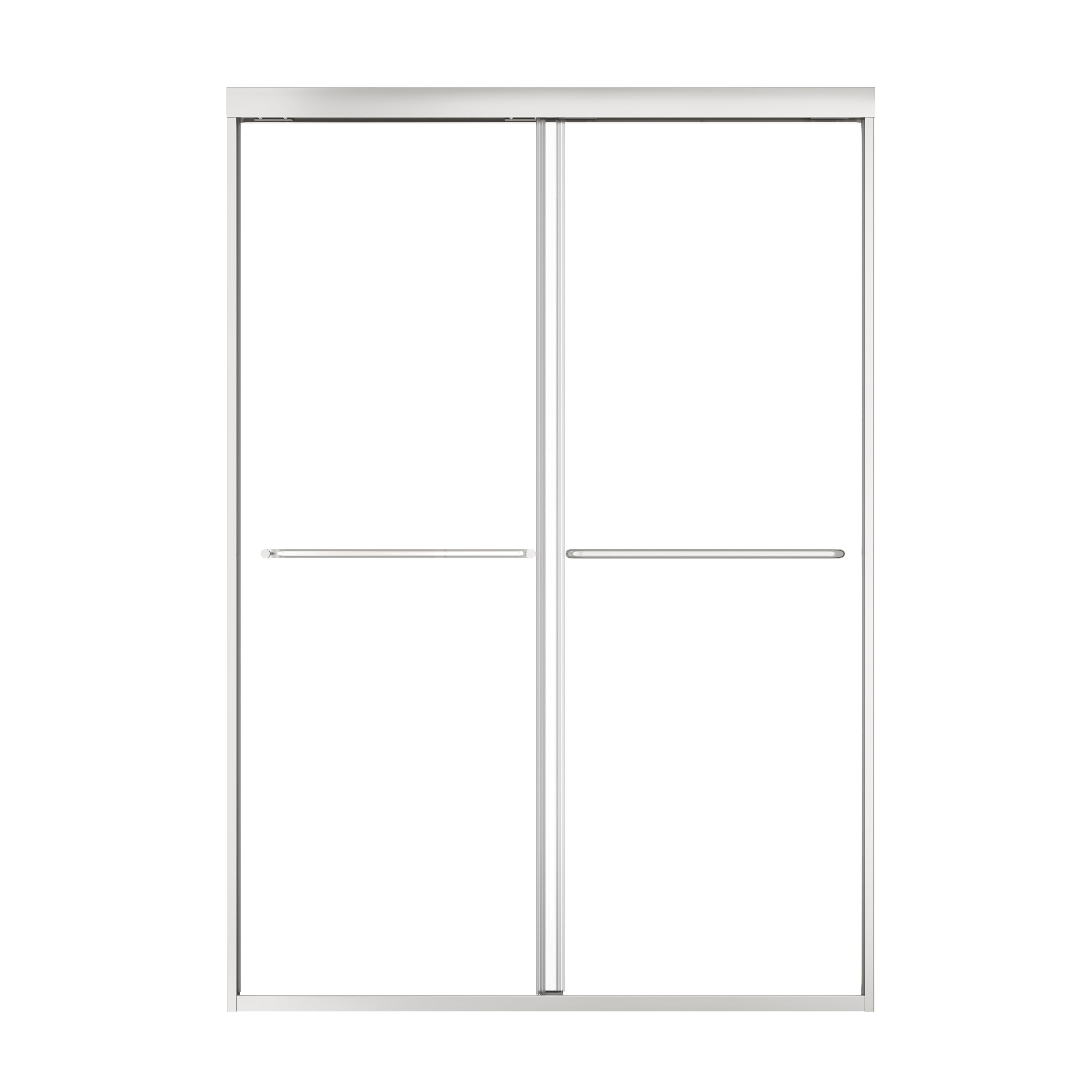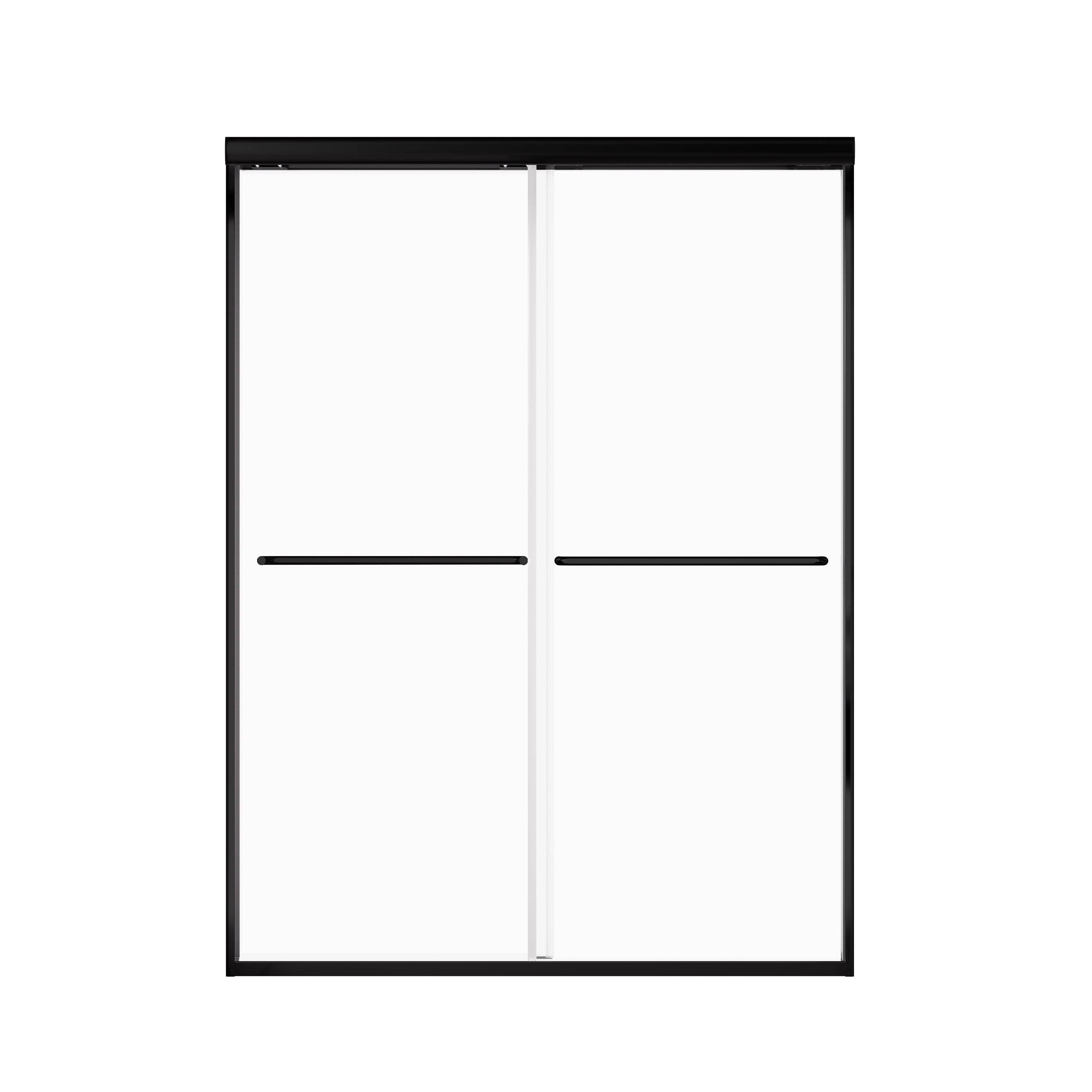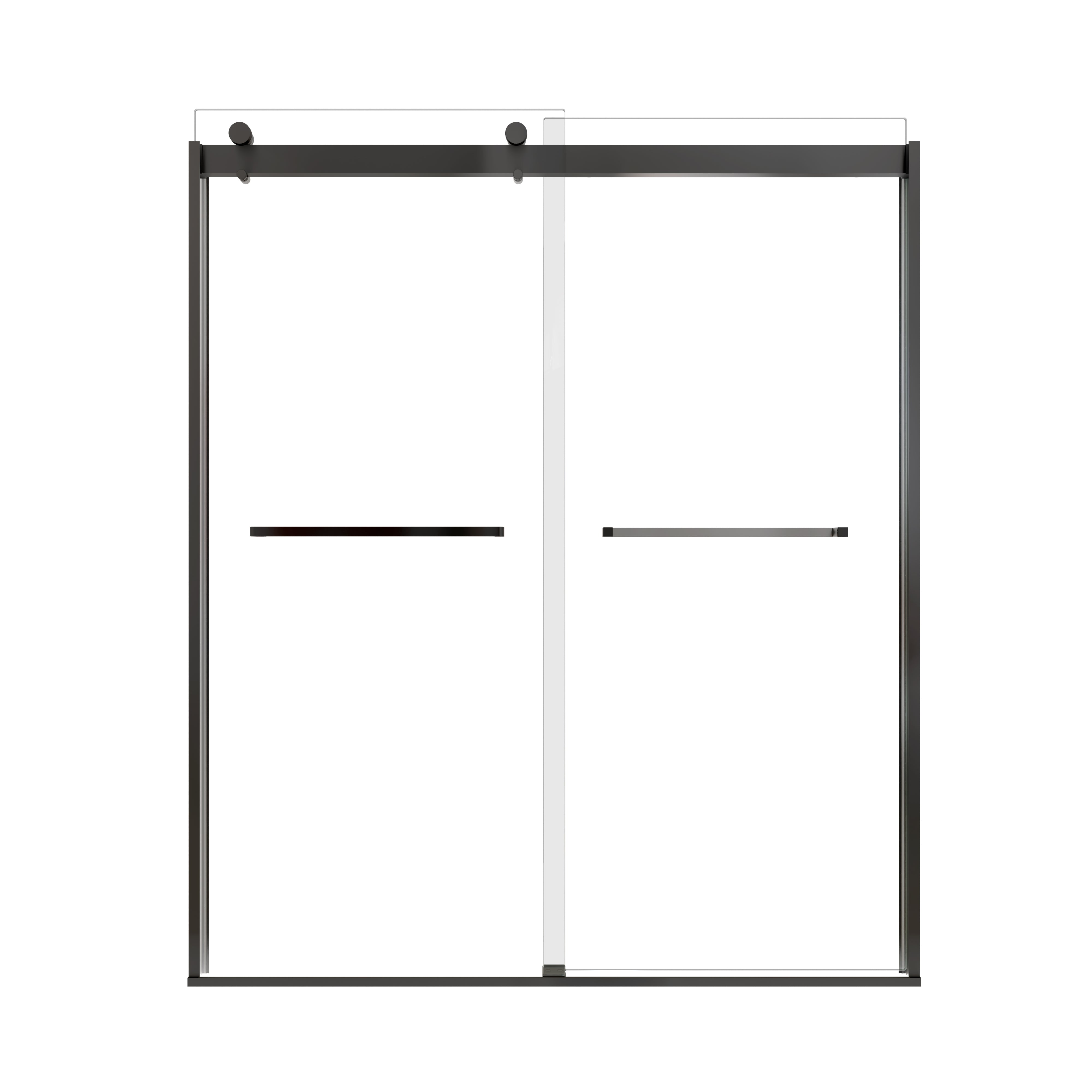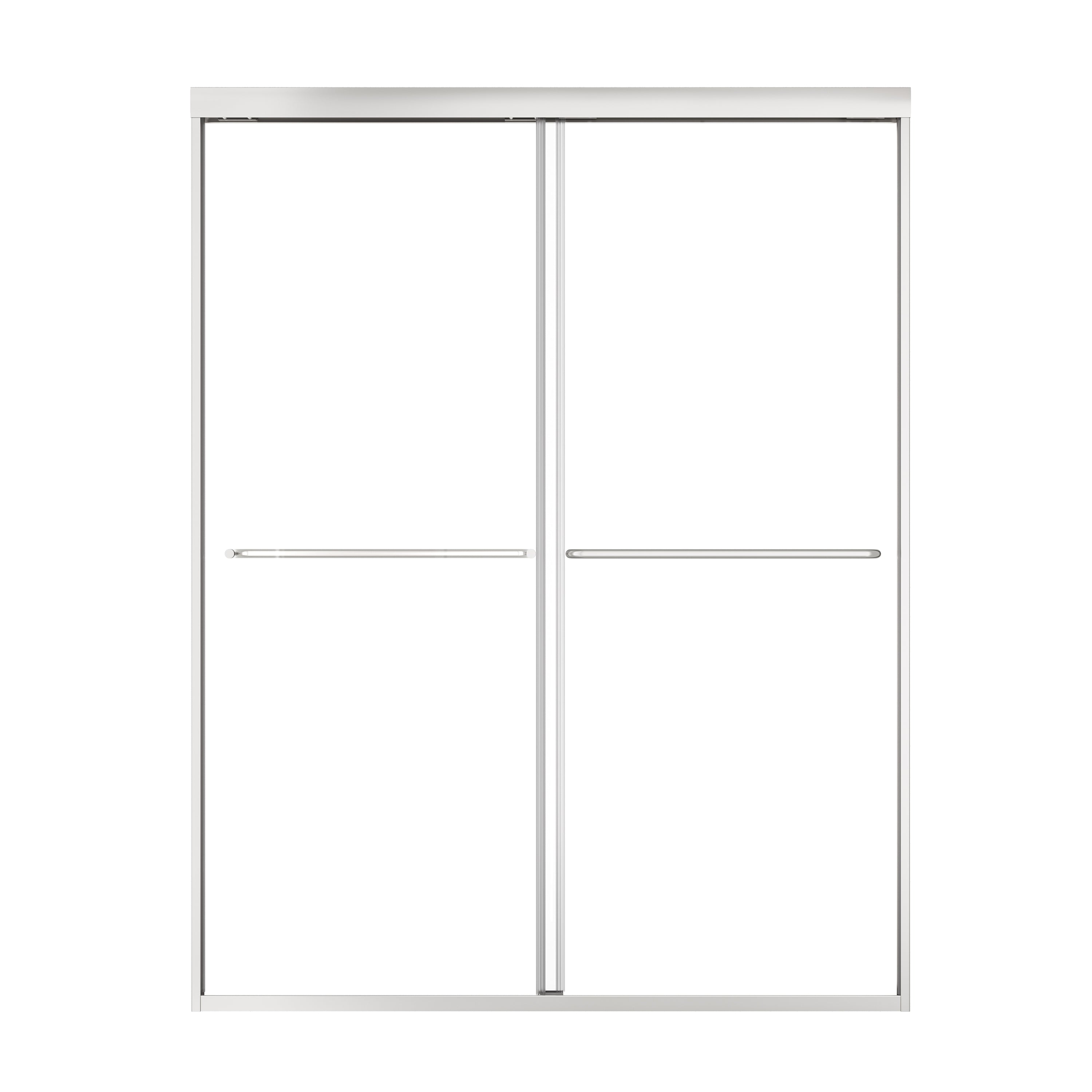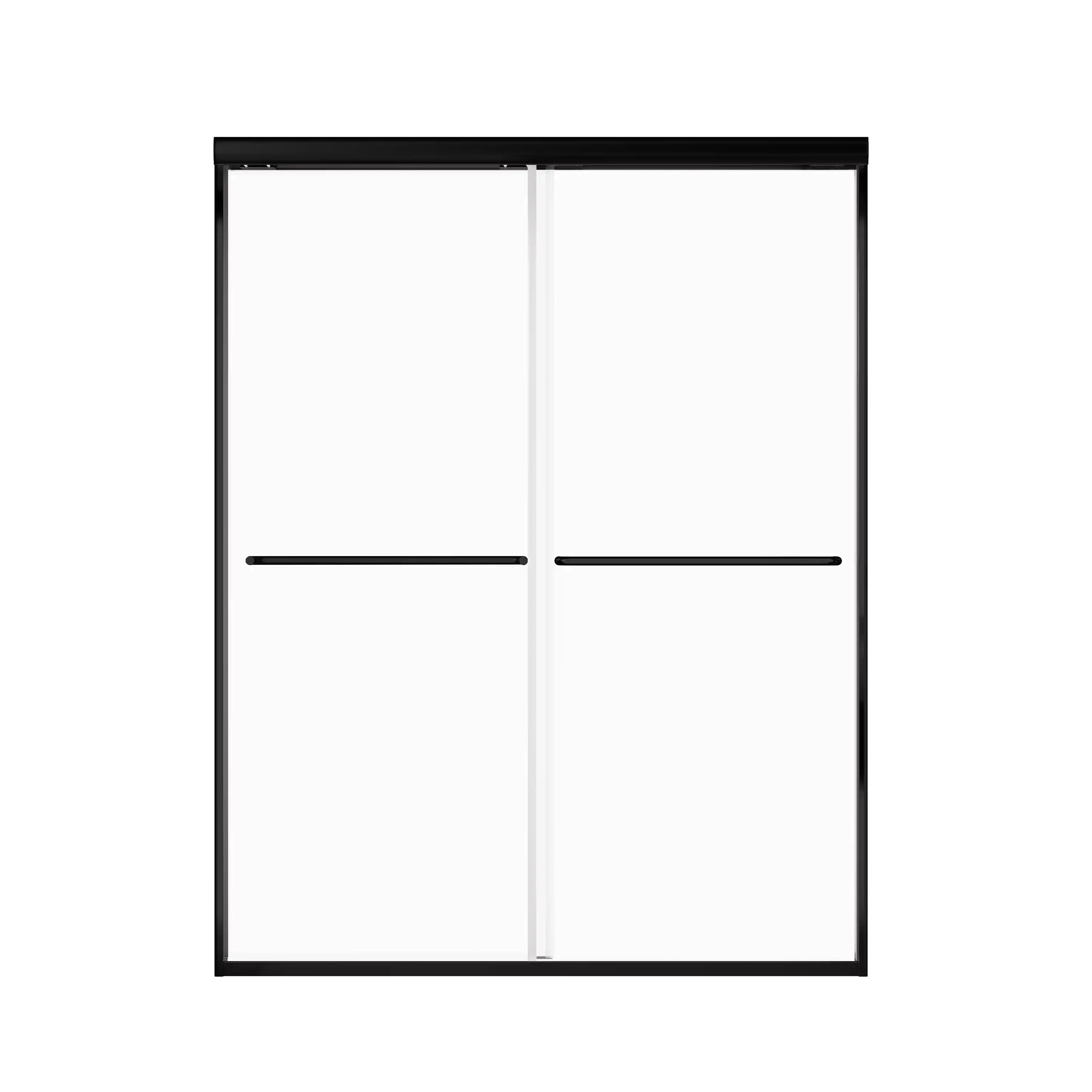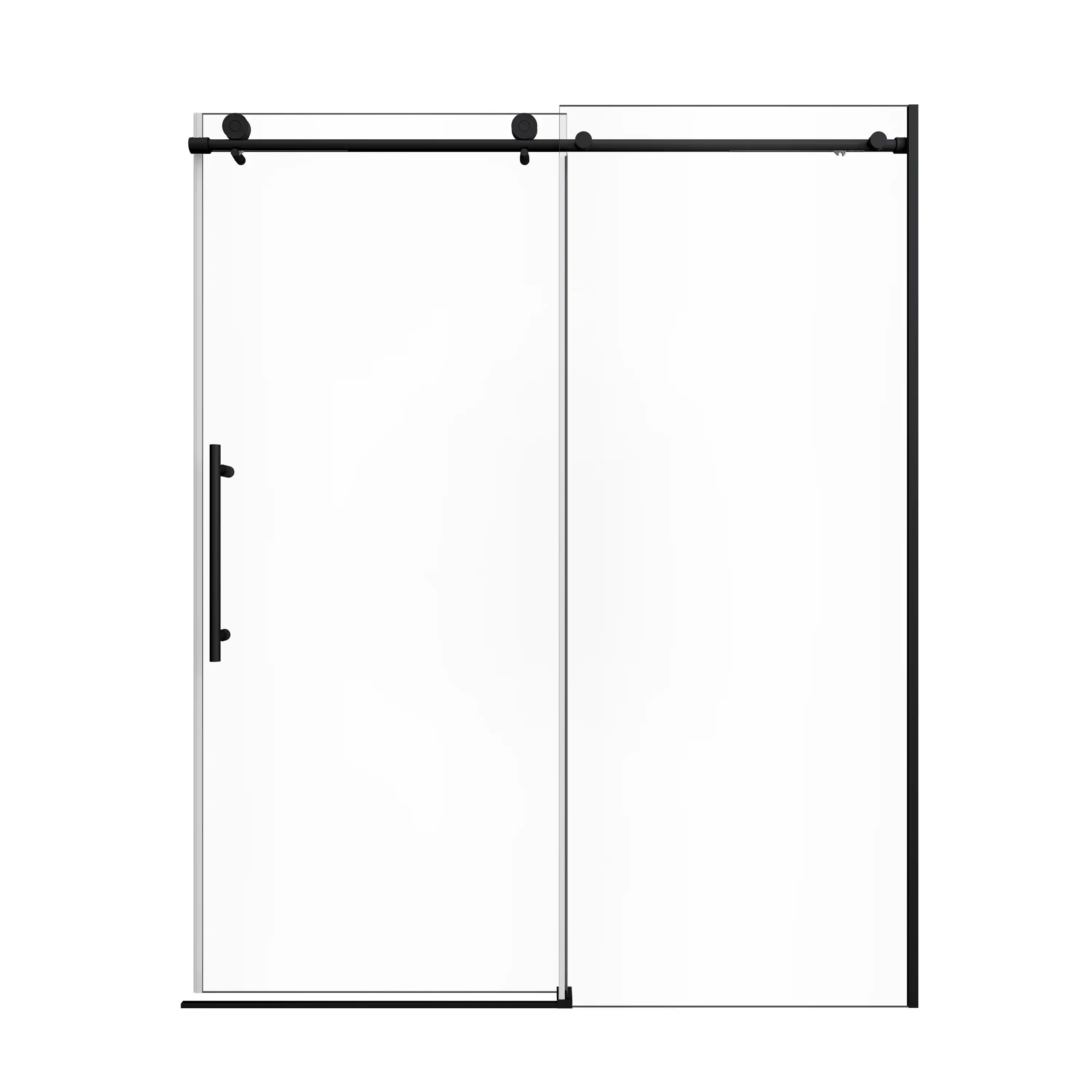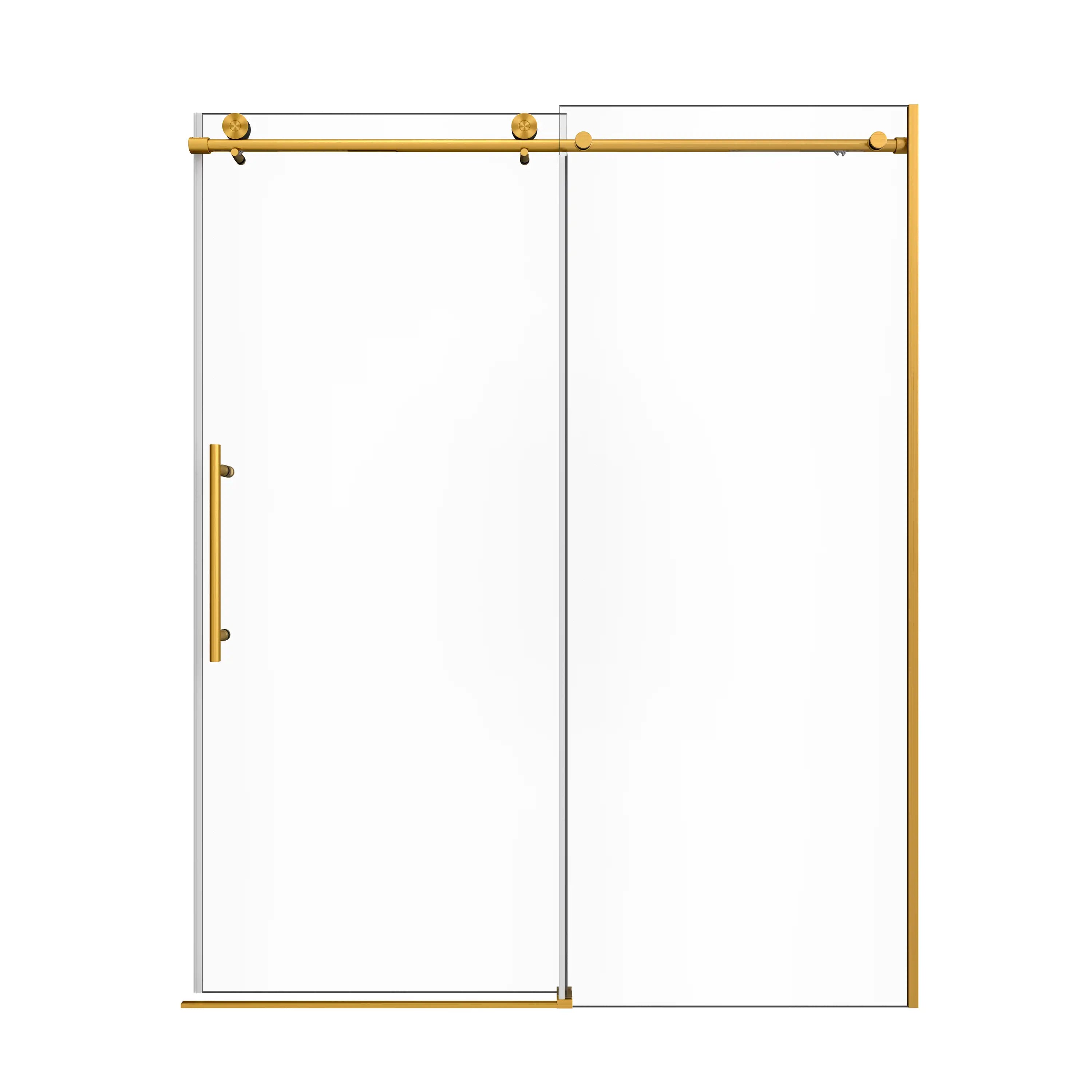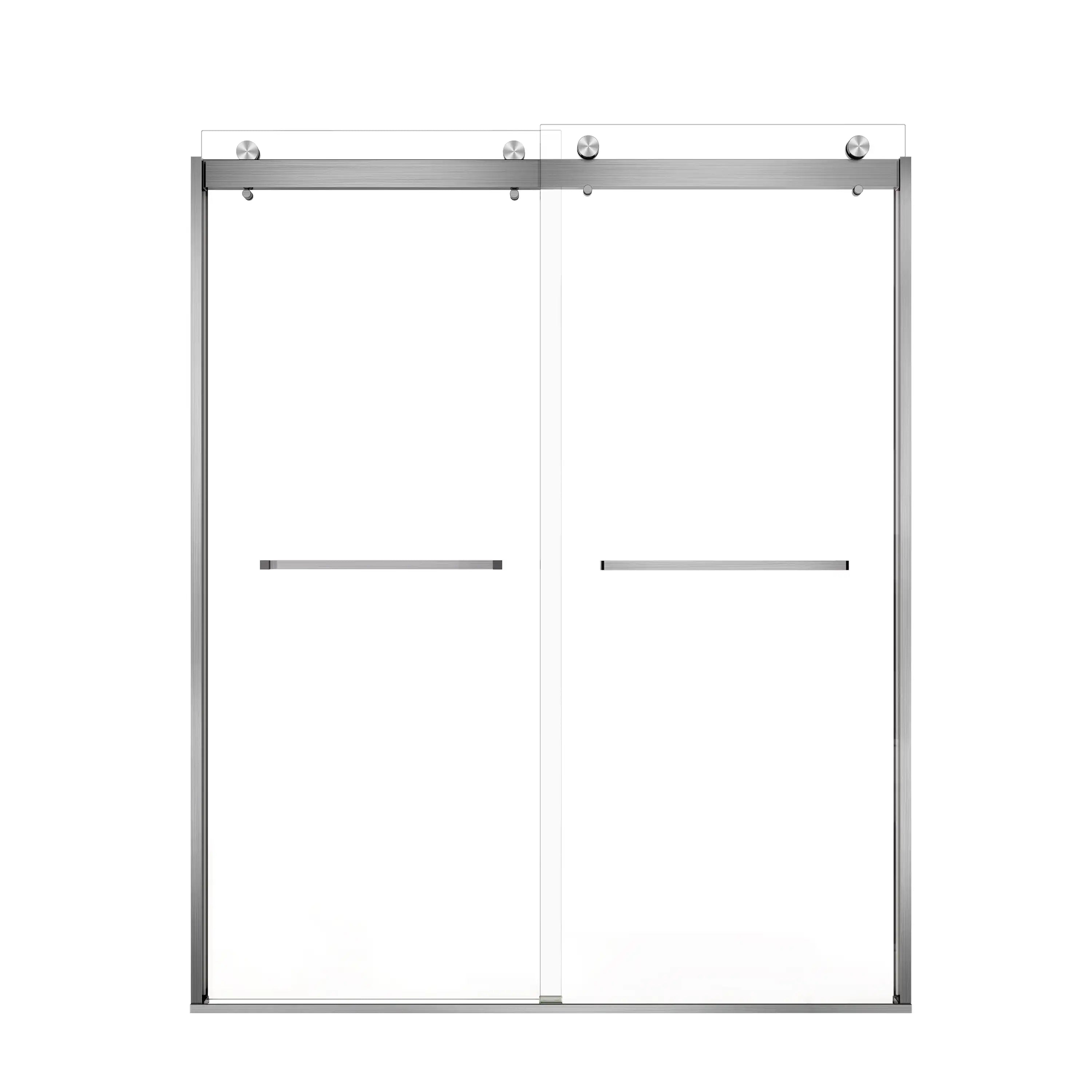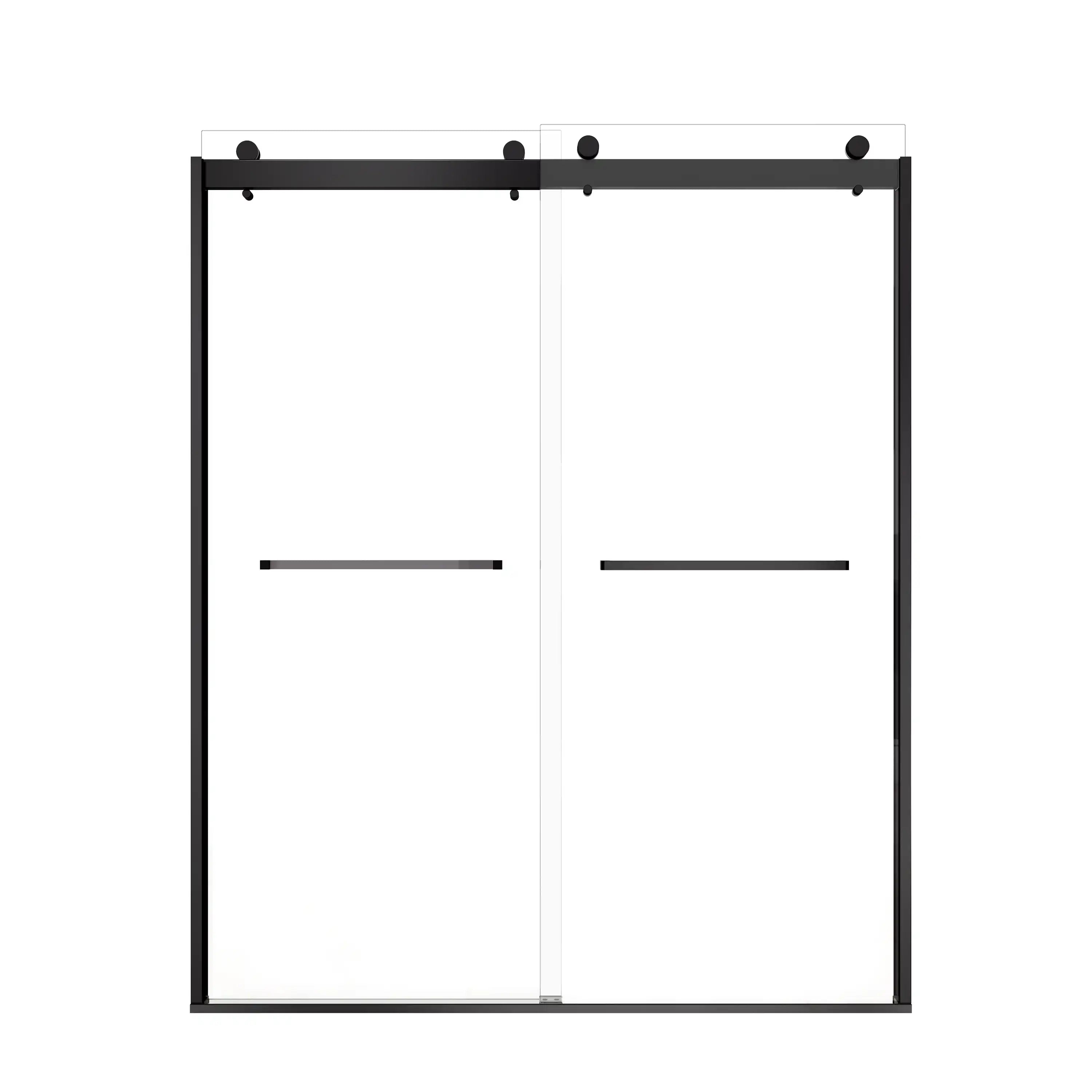Choosing the best shower door glass options is one of the main design aspects when remodeling a bathroom. With so many different takes on style, safety, and thickness, there is a vast range of features that will affect function as well as appearance, so homeowners and designers alike must be savvy in their selections.
In this article, we’ll provide a professional breakdown on the most essential aspects in shower door glass options, from glass types to safety standards and material thickness — so you can use it to choose a stylish and safe fit for your bathroom area.
Table of Contents:
- 1. Glass Styles: Matching Aesthetics with Function
- Clear Glass
- Low-Iron Glass
- Frosted Glass
- Textured Glass
- Tinted Glass
- 2. Safety Considerations: Prioritizing Protection
- Tempered Glass
- Laminated Glass
- Explosion-Proof Film
- 3. Glass Thickness: Striking the Right Balance
- 6mm (1/4 inch)
- 8mm (5/16 inch)
- 10mm (3/8 inch) and Above
- Conclusion: Selecting the Ideal Shower Door Glass
- FAQs: Expert Answers to Common Questions
1. Glass Styles: Matching Aesthetics with Function
When evaluating shower door glass options, the first and most visible factor is the glass style. The choice you make here dramatically influences the overall atmosphere of your bathroom. Below are five of the most common styles, each catering to different aesthetic and privacy needs.
Clear Glass
Standard clear glass is the most popular option for its minimalistic and open look. It allows natural and artificial light to flow freely, making small bathrooms feel more spacious. However, it often carries a faint greenish tint due to iron content, which may slightly alter the visual tone of your space.

Low-Iron Glass
Low-iron or “ultra-clear” glass eliminates that green hue found in standard clear glass, offering a crisper, more accurate color representation. This is a premium choice for high-end bathrooms aiming for a pure, modern look. The clarity enhances tile details, lighting design, and spatial depth—perfect for minimalist interiors.

Frosted Glass
Frosted glass diffuses light while obscuring visibility, making it ideal for bathrooms shared by multiple users or for those who prioritize privacy. It still maintains a bright environment without full transparency, striking a balance between openness and discretion.

Textured Glass
Available in patterns like rain, wave, or bubble designs, textured glass introduces visual interest and moderate privacy. It's an excellent option for adding a unique touch to your bathroom without overwhelming other design elements.

Tinted Glass
Bronze, gray, or blue-tinted glass can become a bold statement element. These options can either complement or contrast with your existing palette, adding depth and personality. While they offer limited privacy, their aesthetic impact is undeniable when used thoughtfully.
Each of these shower door glass options allows homeowners to tailor their design approach based on light, space perception, and privacy needs.

🧼 Extra Tip: Cleaning Different Glass Types
- Clear & Low-Iron Glass: Prone to water spots and soap scum. Use non-abrasive cleaners or vinegar-based solutions. Hydrophobic coating helps reduce residue and eases maintenance.
- Frosted & Textured Glass: Naturally hides smudges, but grooves may trap residue. Clean with a soft brush and mild detergent occasionally.
- Tinted Glass: Slightly better at concealing light stains. Avoid acidic or ammonia-based products to protect the hue and surface finish.
💡 For all shower door glass options, consistent ventilation and quick wipe-downs after use can significantly reduce buildup over time.
2. Safety Considerations: Prioritizing Protection
While style plays a major role in the selection process, safety should never be an afterthought. Modern shower door glass options come with various safety enhancements to protect users in case of impact or pressure.
Tempered Glass
Tempered glass is the industry standard for shower doors. It is heat-treated to be four to five times stronger than standard annealed glass. In the rare event of breakage, it shatters into small, blunt pieces rather than sharp shards, reducing injury risk significantly. It complies with most building codes worldwide and is the default choice for many manufacturers.
Laminated Glass
For an extra layer of protection, laminated glass consists of two sheets of glass bonded with a vinyl interlayer. Even if the glass breaks, the fragments remain attached to the interlayer, preventing scattering. This type is particularly beneficial in households with children or elderly individuals.
Explosion-Proof Film
Some glass options come with an additional explosion-proof film applied to the surface. This film adds a layer of containment and can enhance both safety and durability. It’s often used in combination with tempered glass for improved performance.
🔒 Safety Summary: Protecting What Matters
To sum up, tempered glass is the standard for safety and is suitable for most households. For added peace of mind — especially in homes with children or elderly — laminated glass or tempered glass with a safety film offers enhanced impact resistance and containment. Choosing the right safety option ensures not just compliance, but confidence in daily use.
3. Glass Thickness: Striking the Right Balance
Thickness is another important variable in selecting the best shower door glass options, impacting not only appearance but also installation, safety, and hardware requirements.
6mm (1/4 inch)
This is generally the thinnest acceptable option for shower doors and is commonly used in framed systems. While budget-friendly and lighter in weight, it may lack the premium feel of thicker glass. Additional framing is required to stabilize the structure.
8mm (5/16 inch)
Often seen as the middle ground, 8mm glass offers a balance between strength and ease of installation. It provides a more substantial feel while still being manageable in terms of mounting and cost. It’s suitable for semi-frameless or frameless configurations.
10mm (3/8 inch) and Above
Heavier and more durable, glass in the 10mm–12mm range is usually reserved for frameless shower doors. It conveys a high-end, luxury appeal and adds to the visual impact of your bathroom. However, it demands precise engineering, stronger wall anchors, and premium hinges to support its weight.
📏 Thickness Summary: What Works Best for You?
In summary, 6mm glass is commonly used in framed shower doors — lightweight and cost-effective, it's ideal for budget-conscious projects. 8mm is considered the "golden thickness," suitable for both framed and frameless systems while offering a good balance of stability and affordability. Thicker glass (10mm or more) delivers a luxurious, frameless look with a premium feel.
Conclusion: Selecting the Ideal Shower Door Glass
Finding the ideal shower door glass options involves more than just aesthetic preference — it requires a thoughtful balance between style, safety, and structural compatibility. No matter if you are updating a tiny guest bath or planning a luxurious master ensuite, knowing the effect of glass type, safety features, and thickness will ensure you are fulfilling both form and function.
Clear and low-iron glass suit minimalist, modern interiors, while frosted and textured designs serve privacy-conscious households. Safety considerations — like tempered glass with shatter-proof film and laminated glass provide peace of mind, and the right thickness ensures functionality and elegance.
Ultimately, aligning your choice with your bathroom’s layout, user needs, and design goals will help you create a personalized, safe, and enduring bathing environment.
FAQs: Expert Answers to Common Questions
Q1. What is the safest glass option for shower doors?
A1: Tempered glass is the most commonly used safety glass and meets global safety standards. For added protection, laminated glass or tempered glass with an explosion-proof film is recommended, especially for families with children or seniors.
Q2. How do I choose between clear and frosted shower glass?
A2: Clear glass enhances visual space and works well in modern, minimalistic designs. Frosted glass offers more privacy and is suitable for shared or high-traffic bathrooms. Consider your lighting and privacy needs before deciding.
Q3. Is thicker glass always better for shower doors?
A3: Not necessarily. While 8mm to 12mm glass offers a premium feel and better durability, it also requires more robust hardware and structural support. For a framed shower door, 6mm glass may be sufficient and easier to install.
Q4. Does low-iron glass really make a difference?
A4: Yes. Low-iron glass removes the green tint seen in standard clear glass, offering better clarity and color accuracy. It’s ideal for showcasing detailed tile work and creating a cleaner, more luxurious visual effect.
Q5. Can tinted or textured glass be used in small bathrooms?
A5:
Thinking of Buying a Sliding Door? Why the 'Roller Adjustment Range' is the Key to Your Experience
Edge Leaks and Gaps: How This Sliding Glass Shower Door Achieves ‘Almost Zero’ Water Seepage
Looks Aren’t Everything: Why the Structural Integrity of a Shower Door is Key to Lasting Performance






